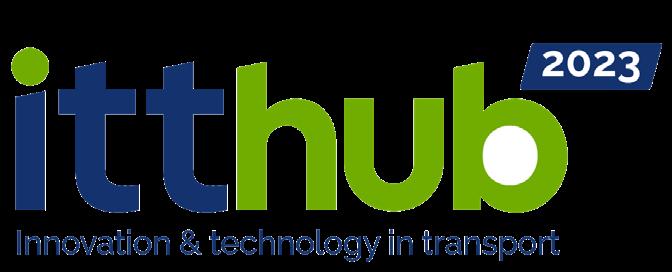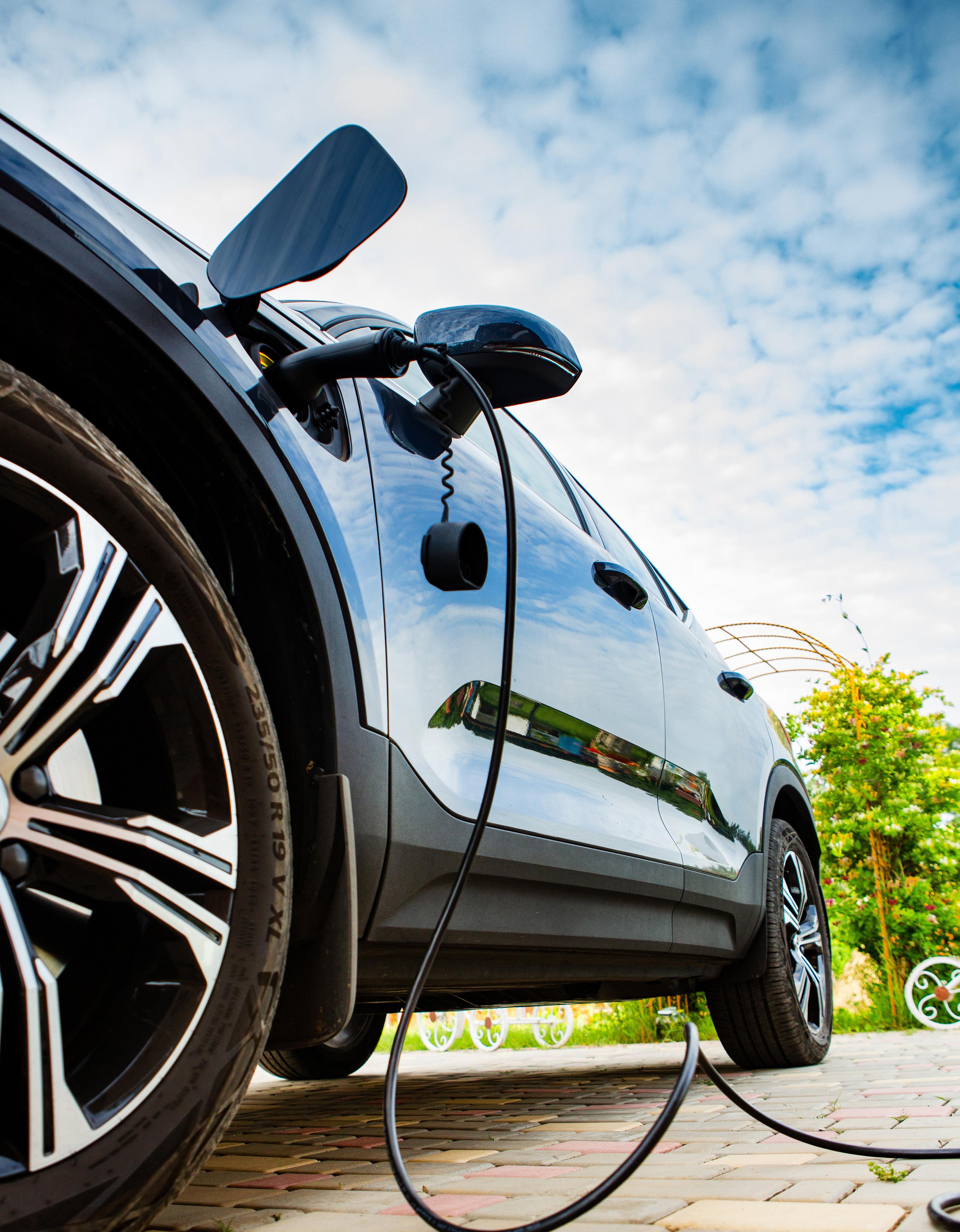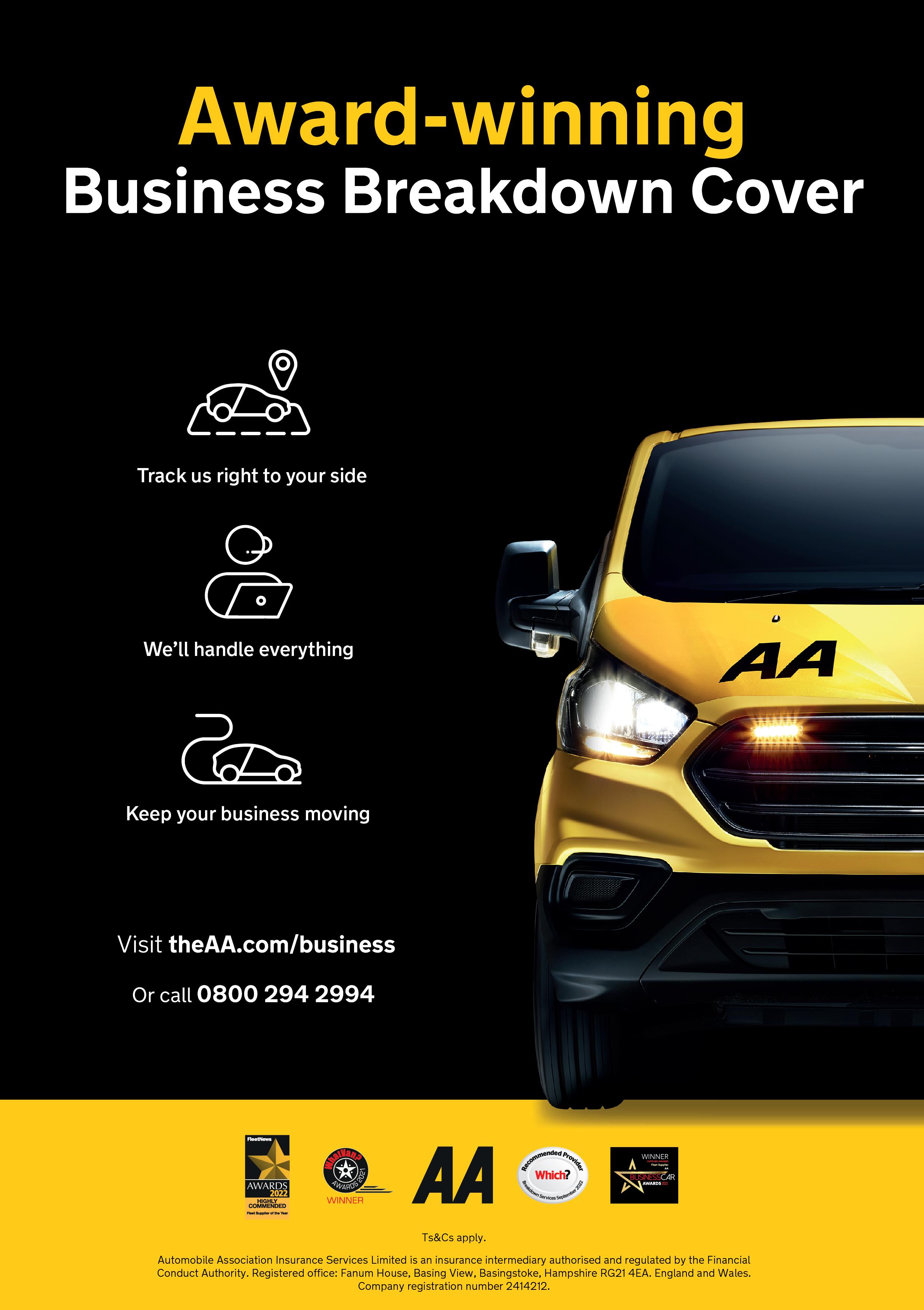SPECIALIST VEHICLES
THE UK’S FIRST ALL ELECTRIC MIXER
Details of the electric mixer and its successful three month trial with Tarmac




LOGISTICS

 DRIVING THE SWITCH TO CLEANER COMMERCIAL FLEETS
DRIVING THE SWITCH TO CLEANER COMMERCIAL FLEETS

SPECIALIST VEHICLES
Details of the electric mixer and its successful three month trial with Tarmac




LOGISTICS

 DRIVING THE SWITCH TO CLEANER COMMERCIAL FLEETS
DRIVING THE SWITCH TO CLEANER COMMERCIAL FLEETS
Start your all-electric future now. We are ready to guide you through the transition to zero-emission transport. DAF can recommend and deliver the optimum truck configuration and charging strategy for your business. Plus, our trusted dealer network offers the facilities, expert advice and a dedicated driver training programme, ensuring you gain the maximum potential from your electric operation.
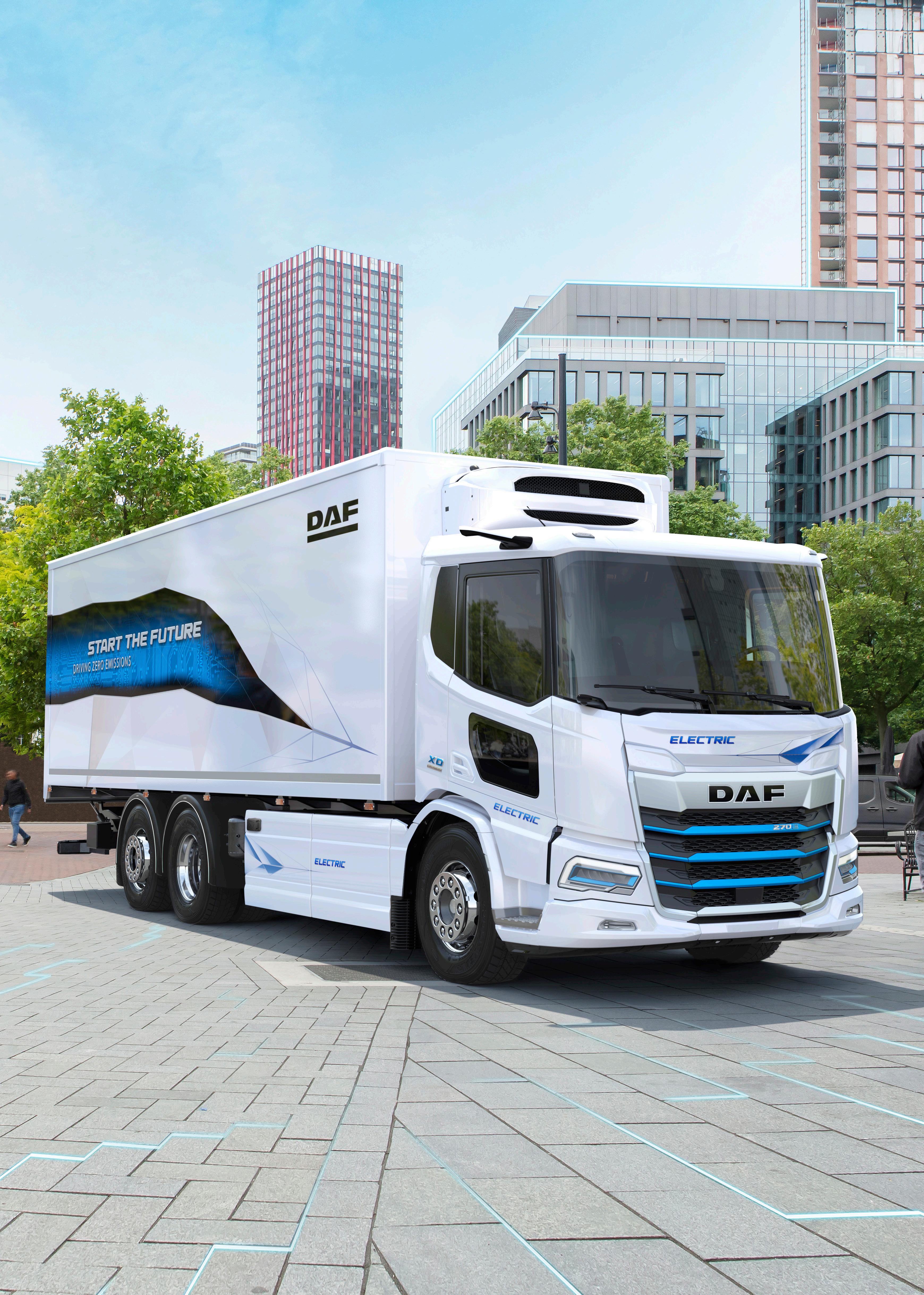
5 News
£1.2 million awarded for nine green freight projects; Micro-logistics hub trial commences in Westminster; and Transport for London launches cargo bike action plan
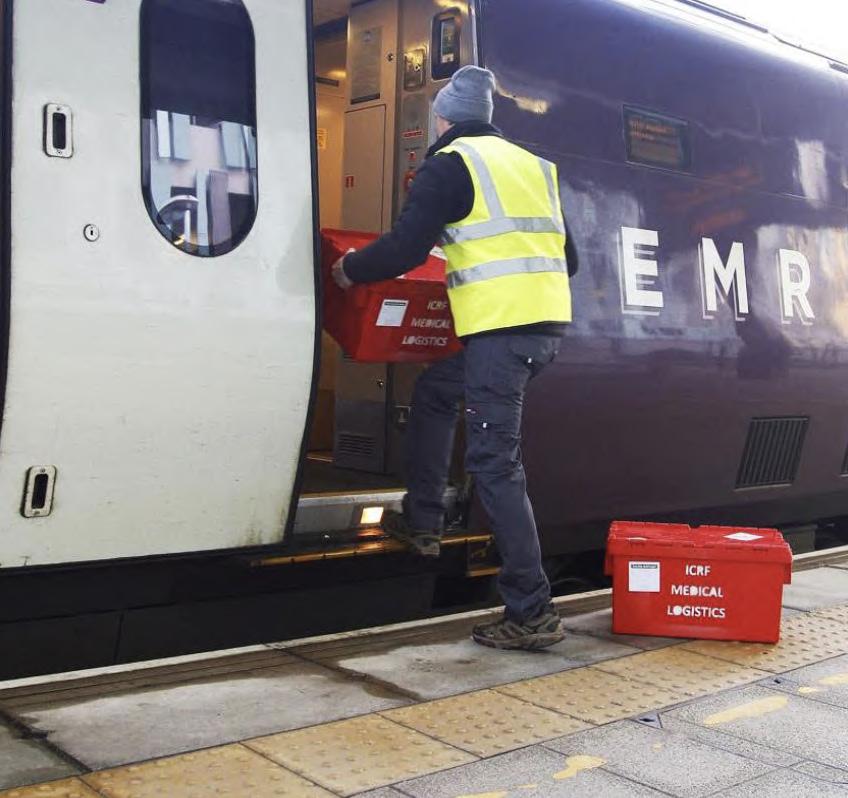

8 Cargo Bikes
Taking cargo bikes mainstream was the theme for the first National Cargo Bike Summit organised by Landor Links and held at the Guildhall in London on 31 March. Andrew Brown from the Bicycle Association shares what occurred
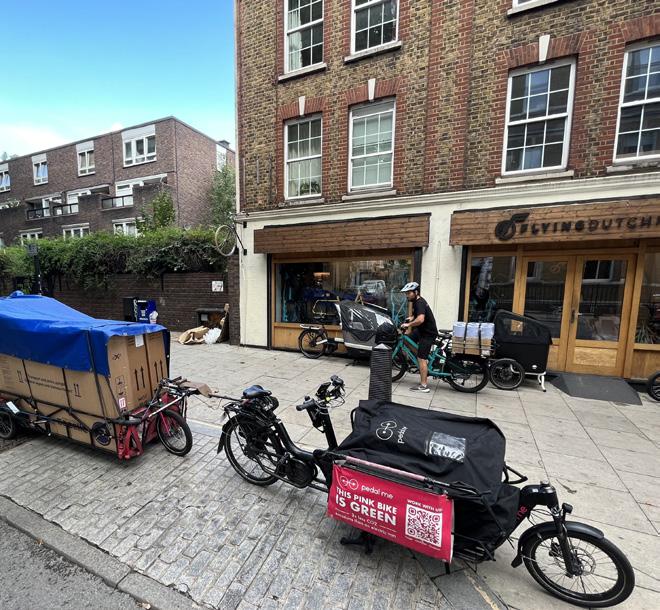
10 Logistics
The Cross River Partnership shares its latest work on supporting the logistics sector in London with alternative, non-road freight modes, including rail and river
13 Technology
Digital Catapult has unveiled details of its new project, the Logistics Living Lab, which aims to cut the carbon emissions of empty and near-empty delivery trucks on the road
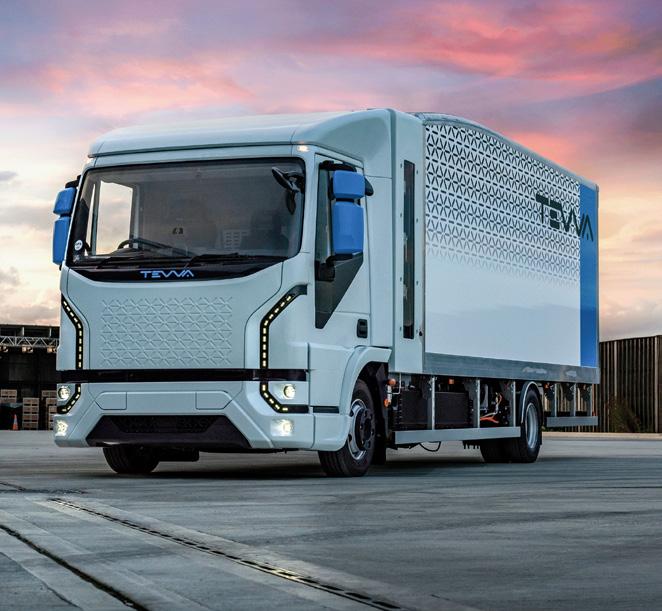
15 Road Transport Expo
The Road Transport Expo, which takes place on 28-30 June in Warwickshire, combines a vast exhibition of the latest trucks, equipment and fleet services, along with a free-to-attend Knowledge Zone conference to find out about the latest issues affecting the HGV sector
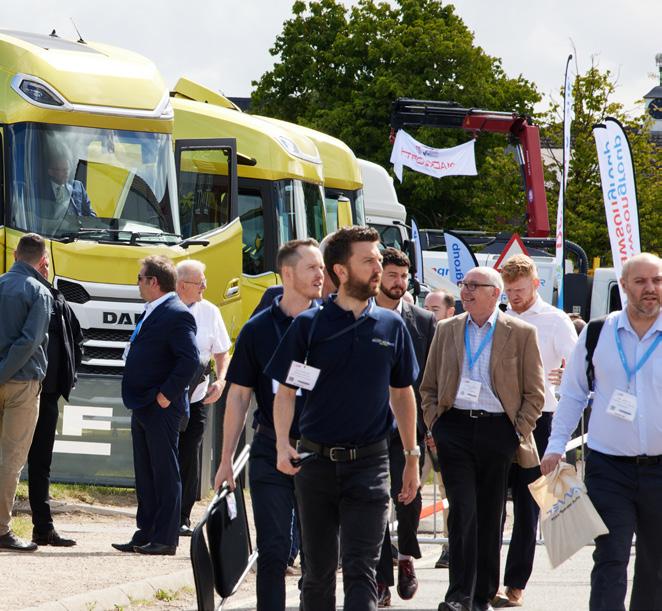
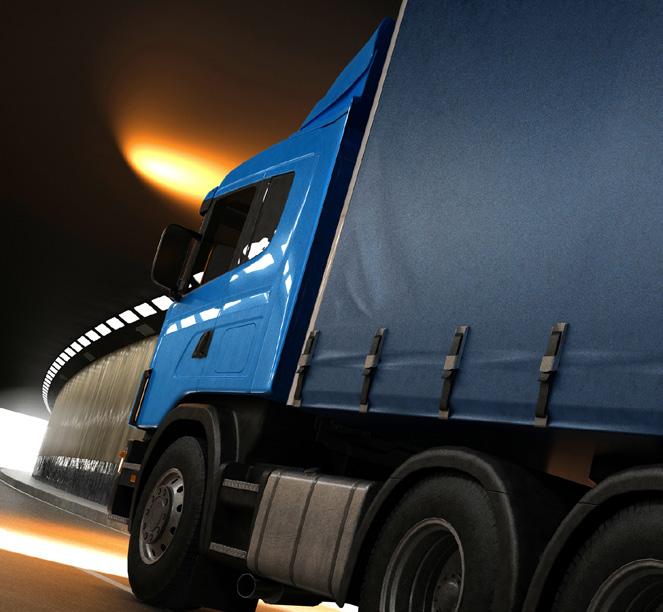
18 Specialist Vehicles
Kevin Walker, technical director at TVS Interfleet has led on the project to launch the UK’s first electric mixer, following a successful three-month trial by Tarmac
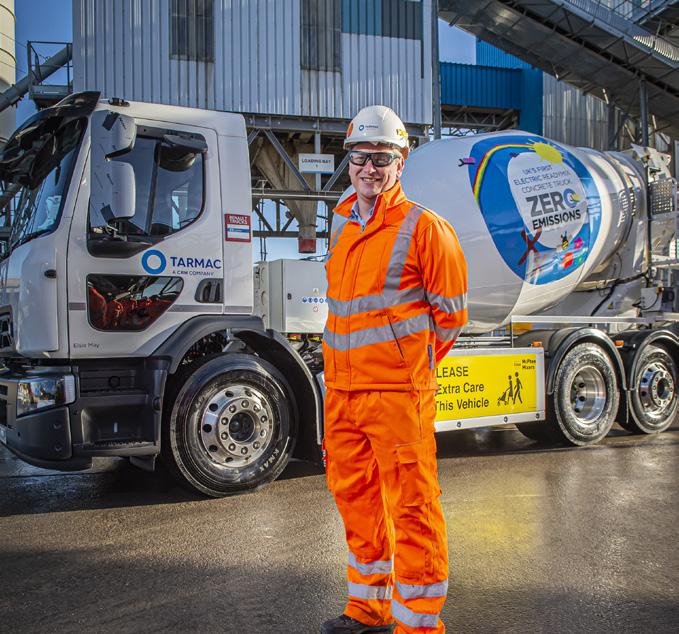
20 Hydrogen
Is the UK really doing everything it can to maintain momentum and realise hydrogen opportunities? Harsh Pershad, head of hydrogen at Tevva, takes on the debate
22 CV Show Review
The 2023 Commercial Vehicle Show took place at the NEC in Birmingham from 18-20 April 2023 and demonstrated the innovation and industry investment going into the decarbonisation agenda
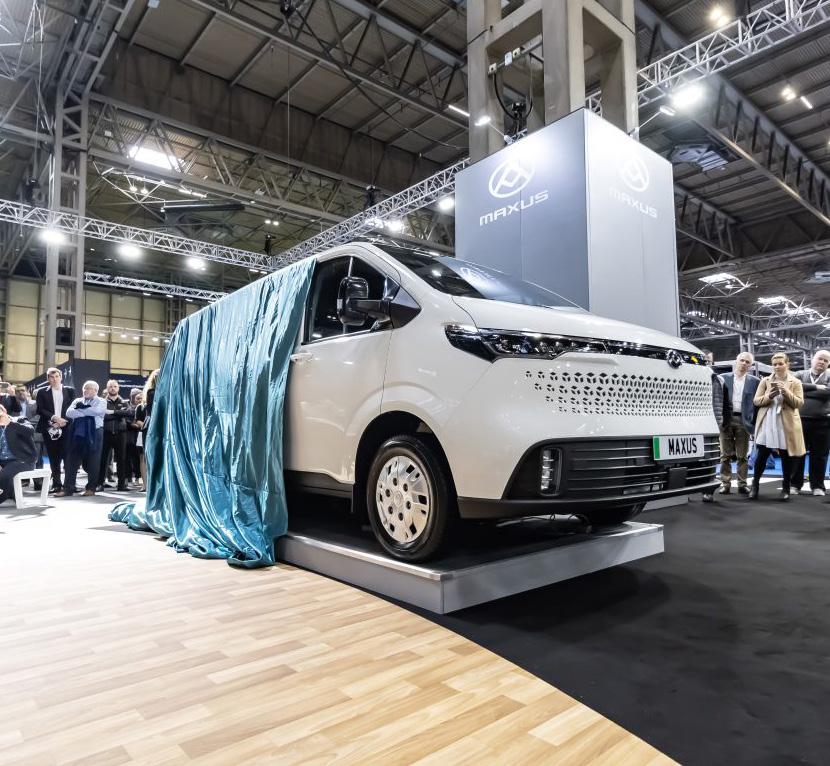
24 ITT Hub 2023 Preview
The Innovation in Technology & Transport (ITT) Hub, which takes place on 10-11 May, is a two-day exhibition, conference and meeting programme which will guide the transport industry through a challenging ecosystem of future technologies and opportunities
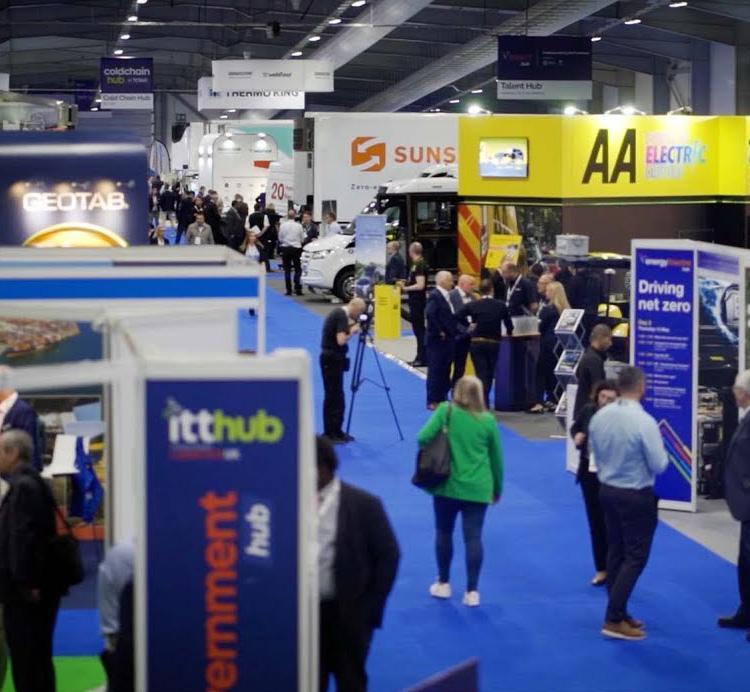
NEC BIRMINGHAM 18 - 20 APRIL 2023
Visit us on stand 5E70 for:
On-vehicle demonstrations for our whole product range
Cutting-edge security innovations for the VW ID.Buzz and Ford E-Transit
‘Behind the scenes’ look at our anti-peel kit testing simulation
Your guide to preventing common vehicle attack methods

Discover why our shielding range is your game-changer for 2023


Reveal of our next generation cargo locking solutions
· HOOK LOCKS · SLAMLOCKS · ANTI-PEEL KITS · SHIELDING ·
· CARGO LOCKS · SHUTTER LOCKS ·
Plus we unveil our new partnership with the AA as we launch our Key Assist emergency call-out service.
Nine new innovative freight projects have been awarded a share of £1.2 million in government funding, as part of the Freight Innovation Fund (FIF).

The winning projects, which are led by SMEs, aim to create cleaner, more innovative ways of delivering freight around the country.
One of the winners of funding is Skyports Deliveries which is improving logistics in ports and hard-to-reach areas through the Orkney I-Port project. It will create an intermodal transport hub to improve islandto-island connectivity using drones to make deliveries, conduct surveys and monitoring.
CurbCargo will receive funding for its project which uses data to track the environmental impact of freight deliveries, which will prompt companies to change how they order products to reduce vehicle movements.
Electric Assisted Vehicles will receive funding for the development of a 4-wheel, electrically assisted lightweight delivery vehicle as an alternative to petrol and diesel vans.
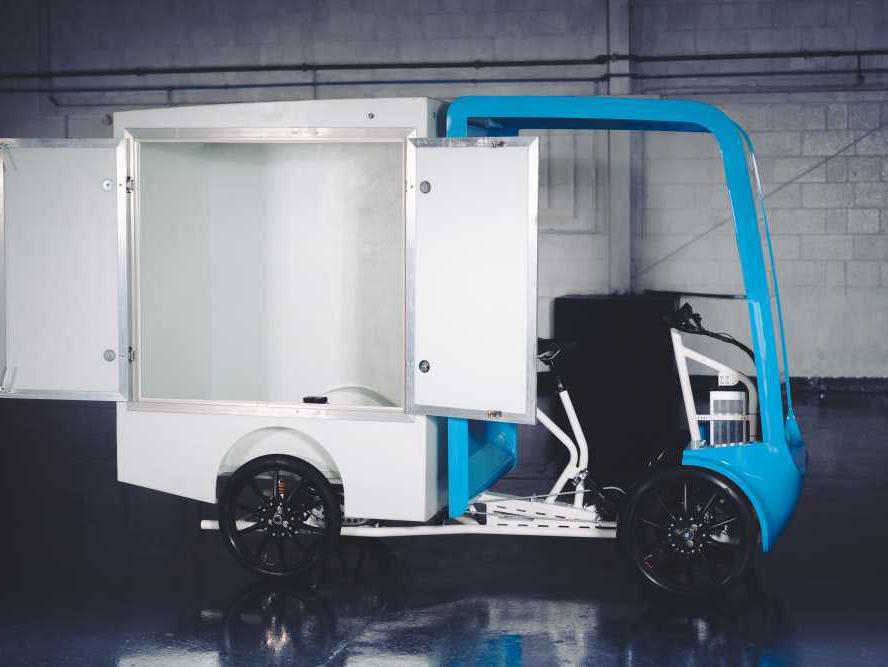
The funding received by CocoonFMS will allow them to create a digital calculator to provide automated management of port costs and shipping expenses, providing more accurate invoice information to users, reducing port delays and improving planning of deliveries.
RoboK meanwhile will use funding to trial the use of their AI system to generate insights from existing video data, such as CCTV, to provide analysis on things like capacity and asset movement in real time to reduce costly delays and inefficiencies.
The winning SMEs will benefit from a freight innovation fund accelerator, which will provide bespoke business support to help them access private investment. They will also be invited to join a “freight innovation cluster”, a community of innovators that will hold events, encourage collaboration and generate new opportunities, and stimulate growth within the wider freight sector.
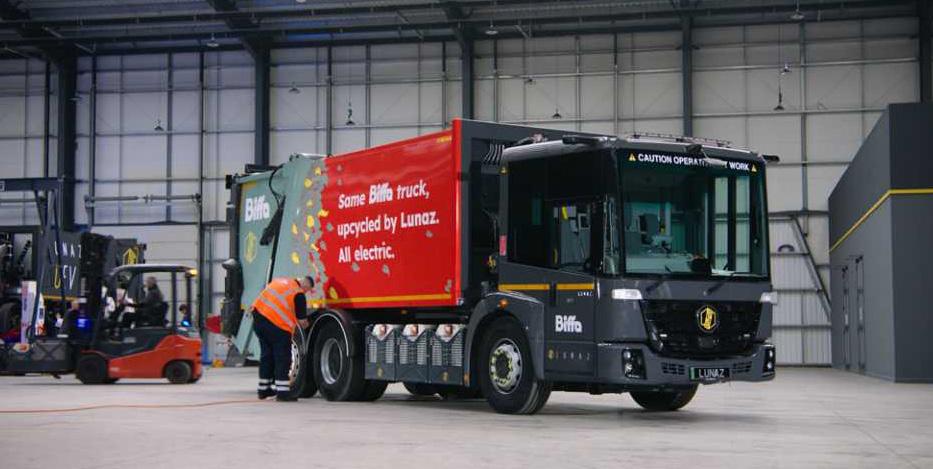
READ MORE
Waste management company Biffa and electrification and upcycling business Lunaz, will be working together to give Biffa trucks a new lease of life by replacing diesel engines with electric. This ensures older vehicles are upcycled instead of scrapped as Biffa transitions its fleet to zero-emissions powertrains.
In signing a fleet electrification and upcycling agreement, Lunaz commits to supporting the transition of Biffa’s existing diesel refuse trucks over the next decade to clean-air electric powertrains through its proprietary upcycling and electrification process and technology. This multi-year production programme is expected to see growing numbers of vehicles delivered to Biffa over the mid-term, with an initial order of up to ten 26-tonne Upcycled Electric Vehicle (UEV) refuse trucks saving up to 210 tonnes in embedded carbon.
Lunaz’ home in Silverstone, England has a capacity to up-cycle more than 1,110 industrial vehicles every year. The company has already committed to expanding its UK up-cycling and electrification footprint to meet surging demand for electrified vehicles in the run-up to the 2030 ban on the sale of fossil fuelled vehicles.
Following the successful completion of technical trials and due diligence, first deliveries will take place for operations on UK refuse collection routes in 2023. Biffa’s UEV refuse trucks will operate on both commercial and municipal waste collection routes.
Every up-cycled electric vehicle produced by Lunaz is said to save 82 per cent of the embedded carbon within that vehicle.
READ MORE
Nearly 20 million tonnes of CO2 could be saved every year if the UK’s van fleet was converted into fully electric vans, according to new research by Vauxhall. Vauxhall calculated how much CO2 could be saved every year if the country’s van fleet converted into electric Light Commercial Vehicles (e-LCVs) that produce zero tailpipe emissions. Using official UK Government and Society of Motor Manufacturers and Traders (SMMT) figures, Vauxhall calculated vans account for 18.2 per cent of the UK’s annual transport related CO2 emissions and 4.6 per cent of the country’s total annual carbon emissions.
With 4.77 million petrol or diesel vans on the road, and with an average annual mileage of 13,000 according to the Department for Transport, van drivers in the UK cover more than 62 billion miles annually. Using the SMMT’s average new van emissions estimate of 195.7 g/km CO2 as the fleet average emissions, Vauxhall
calculated annual emissions exceeding 19.5 million tonnes of CO2.
Last year, more than 16,000 electric LCVs were delivered to businesses and customers across the country, a rise of 31.2 per cent over the previous year. As one of few manufacturers in the country to offer fleets and businesses a fully electric van across its line-up, Vauxhall was the UK’s best-selling e-LCV manufacturer in 2022, with the Vivaro Electric the bestselling e-LCV model in the country.
However, e-LCVs accounted for just 5.9 per cent of total van registrations in 2022, well behind the 16.6 per cent 2022 market share for electric cars, and quite far off the 10 per cent proposed mandate for 2024 for e-LCV sales. As well as zero tailpipe emissions, electric vans offer businesses a number of benefits, including exemption from current congestion and emissions zone charges.
READ MORE
The micro-hub acts as a crucial step for consolidating deliveries, bulk-buying, and a place to sort deliveries, which can reduce the number of polluting vehicle trips and congestion. It is estimated that cargo e-bikes will deliver about 2,000 parcels a day from the hub to residents and businesses, thereby reducing congestion, pollution, and fatalities.
Westminster City Council (WCC) and Cross River Partnership (CRP) have launched a six-month micro logistics hub trial in Pimlico to support zero-emission last-mile deliveries in the City of Westminster. This is a CRP and WCC-funded trial, supported by Infinium Logistics, and carried out by Delivery Mates zeroemission couriers. The project is part of the Defra-funded Clean Air Logistics for London (CALL) programme, which aims to move more freight into London via river rather than road, supported by zero emission delivery methods and micro logistics hubs in Central London. Online purchases will be delivered by electric cargo bikes. Based in the Q-Park Pimlico parking facility, the hub will receive
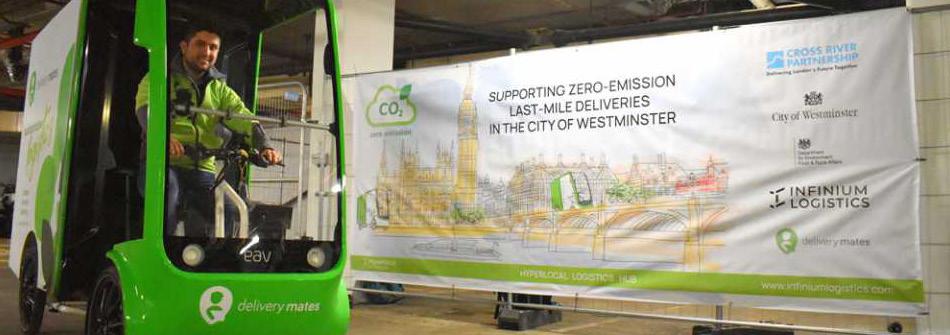
SAFETY
parcels from an electric delivery vehicle and then distribute them by electric cargo bikes in Westminster and the surrounding area. Micro logistics hubs are small, secure spaces that couriers and operators can use to receive, sort, and send deliveries in central locations, ideally by cargo bike or walking porters, to support zero-emission last-mile deliveries in the City of Westminster. Infinium Logistics, whose mission is to decarbonise, electrify and optimise the first to last mile delivery sectors, have created the Hyperlocal Logistics Hub within Q-Park Pimlico on Cumberland Street. The area has had security fencing erected, entrance gates, and the necessary electrics installed to allow the secure park and charge of e-cargo bikes and dedicated space to carry out distribution activities.
Delivery Mates, the company appointed to run the hub, will receive goods on electric vehicles at the micro logistics hub and then deliver them on electric cargo bikes to the local area. Loading and unloading will take place within the car park to respect residents’ wellbeing and keep noise levels at minimum. Delivery Mates operate five existing hubs in London and have share important data and insights, such as CO2 emissions savings and the number of parcel collections and deliveries.
Researchers at the University of Westminster used GPS data to compare routes taken by cargo bikes in London with routes that vans would have to take to deliver the same parcels. Results show that services provided by cargo bikes in London are 1.61 times faster than that performed by van, which in a year saves over 14,500kg of CO2 and over 20kg of NOx (nitrogen oxides).
READ MORE

Euro NCAP has announced that it will launch a new Truck Safe City and Highway rating scheme, which will provide detailed information about the safety of heavy trucks.
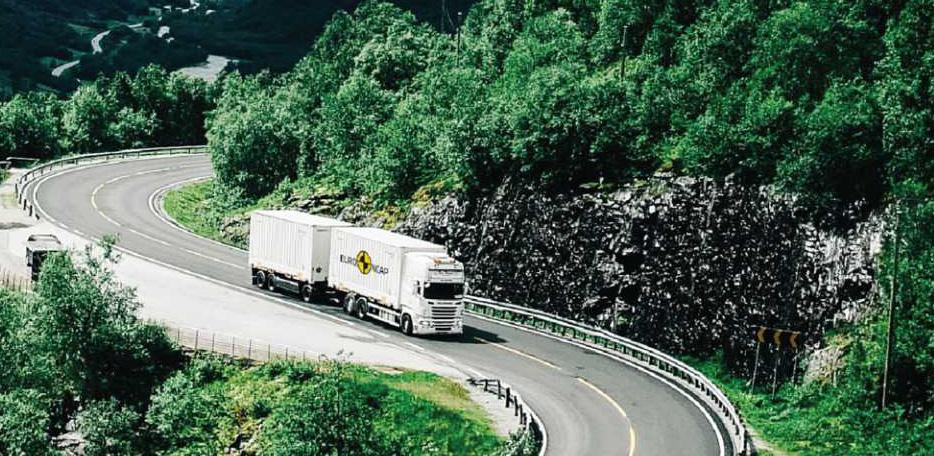
The new Truck Safe rating scheme will enable all stakeholders in the freight industry to identify and assess the safety level of equipment in their heavy truck fleets. Not only will this deliver enhanced safety for drivers, but it will create a market for safe technology that will allow manufacturers to innovate and advance their offering within a clear framework for safety grounded in Euro NCAP principles. Cities and public authorities will be able to clearly identify the best vehicles for their roads and incentivise adoption and companies will be able to easily determine the vehicle specifications they need to comply with in road authority schemes.
“Advanced Driver Assistance technologies are now standard on most European cars, and they are contributing to more than a 40 per cent reduction in some crashes. Heavy trucks have the very same crashes but don’t have this technology fitted, leading to a disproportionate number of casualties in crashes involving heavy vehicles,” said Matthew Avery, chief research strategy officer at Thatcham Research.
Michiel van Ratingen, secretary-general at Euro NCAP, said: “By examining safety levels of heavy and commercial trucks and improving their safety, I believe that we can end traffic-related fatalities and help many European countries to achieve their ‘Vision Zero’ target in road casualties. A truck safety label can incentivise good performance, allow optimisation of operational safety and cost, and will accelerate regulatory efforts to improve truck safety. European roads will
hence become safer. We are actively seeking new members that can invest resources and their knowledge to help us make this scheme the success that society needs it to be. This marks the beginning of a new, challenging, and exciting journey for Euro NCAP, its members and those who wish to join us in the future.”
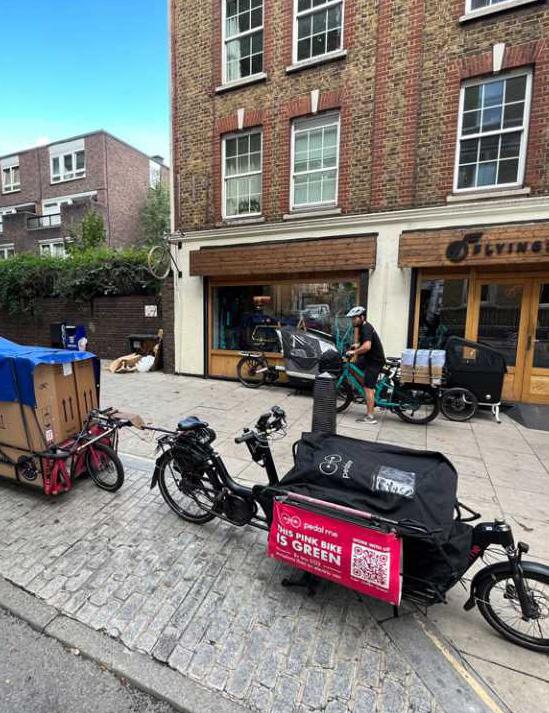 Denise Beedell, senior policy manager, Logistics UK
Denise Beedell, senior policy manager, Logistics UK

In 2019, government set an immovable target for the UK to meet net zero greenhouse gas emissions by 2050 and end the sale of new petrol and diesel cars and vans from 2030, to ensure the country minimises its contribution to climate change. In response, the logistics industry is progressing its decarbonisation plans, including accelerating the transition to electric vehicles. In April 2021 the Office for Zero Emission Vehicles (OZEV) conducted its ‘Consumer Experience at Public Chargepoints’ consultation, seeking ways to improve consumer experience for electric vehicle (EV) drivers at public chargepoints. Logistics UK submitted its own response to the consultation, in which the association called for a pragmatic approach to setting high reliability standards to avoid disruption to the widespread and continued roll out of public chargepoints.
At the end of March 2023, the government published its response to the consultation with new policies and regulations covering minimum payments, reliability and open data that aim to reassure EV drivers that the public chargepoint network will be able to meet demand as more EVs are registered on UK roads. While Logistics UK is pleased to see progress from government, the business group is disappointed that is has taken almost two-years to roll out universal operating standards for the public EV charging network.

Transport for London (TfL) has unveiled a new plan to transform how deliveries and servicing trips are made in the capital by promoting the growth of cargo bikes.
TfL estimates that cargo bikes could replace up to four per cent of van kilometres by 2030.
Central London is expected to see the highest growth and could replace up to 17 per cent of van kilometres by 2030. It is estimated that the carbon savings resulting from cargo bike growth across Greater London will be up to 30,000 tonnes of CO2 a year by 2030.
Cargo bikes also present a lower risk to people walking and cycling than vans and heavy goods vehicles (HGVs), helping to make London’s streets safer and more attractive for people using public transport, walking and cycling.
The plan sets out actions to promote cargo bike use and address barriers that inhibit or prevent a shift from vans to cargo bikes. Key actions within the plan include developing a London safety standard for cargo bikes that adopts best practice, publishing guidance
for both riders and operators. It also includes exploring opportunities to provide space, such as micro-hubs and parking to support last mile cargo bike operations, and monitoring where key cargo bike routes are across the city to identify usage patterns and project future growth.
Will Norman, Walking and Cycling Commissioner said: “Cargo bikes are no longer a niche concept, and they can be real game changers when it comes to delivering freight and servicing trips. Not only do they provide environmental benefits by not contributing to air pollution, they also make journeys more efficient, and present a much lower risk of danger to people walking and cycling than vans and HGVs.
“I’m delighted that TfL is launching this action plan to explore how we can grow the use of cargo bikes on our road, to help both the environment and the health of Londoners, and build a better, safer, greener London for everyone.”
READ MORE
Encouragingly, the business group’s calls for a consistent and uniform approach to pricing, systems and chargepoint operation across the country have been acknowledged and implemented into the final policies. A positive element of the response for supporting the industry’s move to vehicle electrification is the immediate adoption of the Open Chargepoint Interface Protocol (OCPI), which will facilitate automated roaming for EV drivers across several EV charging networks. OCPI is used widely in other countries and adoption and early implementation of this protocol is something that Logistics UK wanted to see, to ensure consistent standards of operation are embedded so that necessary adjustments can be made before the market becomes more complex.
It is vital that logistics operators who travel across wide geographical areas can enjoy consistent operating standards wherever they need to charge their EVs. However, regular monitoring, evaluation and reviews must also be carried out to ensure ambitions for high standards are realised as well as supporting new innovative solutions as the network grows and evolves. In addition, Logistics UK highlighted the need for a free 24/7 helpline and roaming solutions for all public chargepoints to ensure that consumers can access support whenever they are struggling to charge.
Most importantly, Logistics UK is delighted to see that government has acknowledged the urgent need for more awareness and consideration regarding the rollout and installation of electric chargepoints. As of 1 January 2023, a total of 37,055 public electric chargepoints were recorded in the UK. Compared to 1 October 2022, only 2,418 chargepoints had been installed, showing an increase of seven per cent. Alongside this, attention must now turn to ensuring that all electric vehicles can use the public charging network; from the start of roll out, the focus has been mainly on electric cars but it is high time that planners and network operators fully recognise the needs of large electric vans so they can have confidence that chargepoints will be available and suitable for their use when needed. Moving forward, the needs of electric trucks and a co-ordinated approach to power supply, as well as land use, must be incorporated into future plans. logistics.org.uk/environment/netzero
Taking cargo bikes mainstream was the theme for the first National Cargo Bike Summit organised by Landor Links and held at the Guildhall in London on 31 March. Andrew Brown from the Bicycle Association was in attendance and shares what occurred
There was a tremendous energy at the first National Cargo Bike Summit, which took place in London on 31 March. Captured brilliantly by Hina Bokhari, London Assembly member and Chair of the London Assembly’s Economy Committee, when she said: “The cargo bike revolution is here.”
Hina Bokhari shared the story of her first experience of a cargo bike care of the Pedal Me team, one of London’s cargo bike operators. Albeit a little nervous she found herself “screaming with joy, I loved it.”
That passion was evident right through the event. From the measured sessions debating safety, security and standards to rallying cries and inspirational first-hand accounts of innovation illustrating the potential of the cargo bike ecosystem (copyrighted to Richard Armitage of Manchester Bikes). But there was a healthy dose of commercial and political pragmatism too.
The need for standards
Standards, particularly rider training standards, were like a thread running through the Summit. Right from the start, chaired by the Bicycle Association’s Phillip Darnton, the need for a recognised benchmark for the cargo bike industry to demonstrate to its stakeholders was very apparent. Will Norman from the Cycling Commissioner for London, launched the new Transport for London (TfL) Cargo Bike Action Plan at the Summit – further proof of the priority now being given to the role of cargo bikes in reducing van deliveries in the capital – and one of its principles is a safety standard for London.
The BA, in close consultation with TfL, the City of London and numerous other stakeholders, is now working to develop national best practice and a framework for rider qualifications and training to assist in the rapid professionalisation of cycle logistics.
Gary Armstrong of Zedify, one of a core group of BA members with direct expertise, explained how the BA is currently undertaking initial drafting work (readers can monitor the BA’s cargo bikes and cycle logistics page, see end of article for details).
The BA explained elsewhere that it will be reaching out to a range of key stakeholders across the country and the logistics sector to ensure its work on standards and training is fit for purpose and not a barrier to the market growth happening right now.
That’s important because, whilst the sector needs to professionalise to channel
growth, that expansion cannot be stifled. Cargo bikes and cycle logistics is a sector estimated to have grown five-fold since 2020, and the 300 delegates, together with the range of cargo bikes on display, amply demonstrated that this is no longer a ‘niche‘ sector for the industry.
Decarbonising logistics
BA-commissioned research shows that cargo bikes could provide an alternative to up to one third of all van deliveries –with a significant reduction of the 24 per cent of all emissions that are generated by transport.
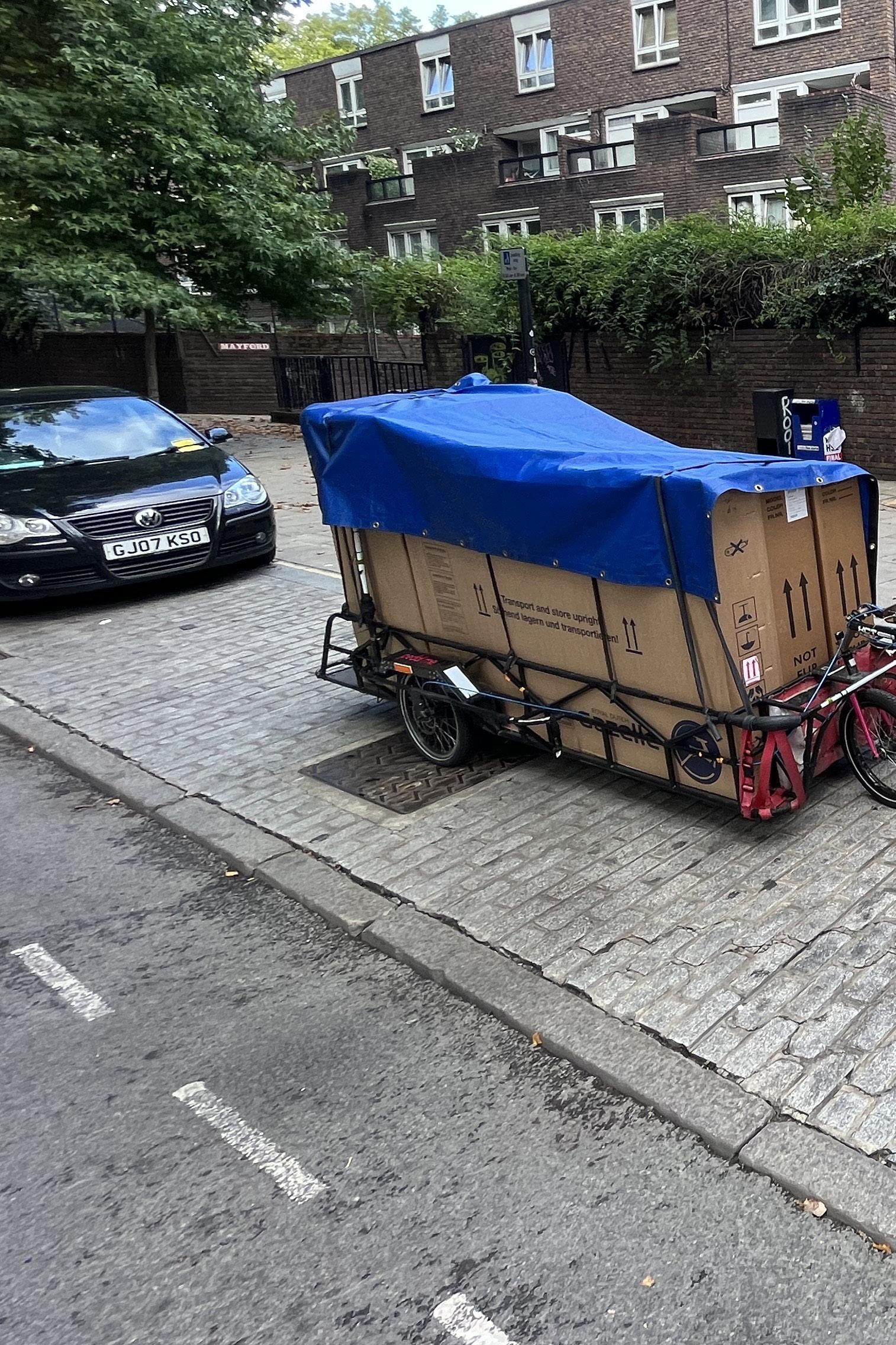
Cargo bikes are economical; quick; reduce congestion; improve our environment; flexible; healthy and above all, efficient.
The BA sees cargo bikes as a strategic priority and will continue its work to drive further growth in this dynamic new sector – one that’s crucial for decarbonising logistics and transport generally.
This was backed by research evidence presented by the Green Alliance, Just Economics and Fare City, all of whom attended the Summit. Hina Bokharis stressed the importance of more story telling – drawing on academic research, but also the evidence and data captured by cargo bike logistics operators and transport authorities like TfL.
Samantha Tharme, senior strategic transport planner at City of London Corporation, said: “The square mile has around 400,000 people commuting every day. Our streets have competing demands, therefore reducing traffic by wider use of cargo bikes is incredibly attractive. Over 255 of vehicles
in The City are freight. We want to work with building managers, occupiers and FMs to encourage them to shift this freight and movement of services onto cargo bikes.”
One of the themes emerging during the day was the need, as Will Norman put it, to normalize cargo bikes.
“We must make cargo bikes normal, mainstream. It is not just about the green agenda and decarbonisation. It is also about the business case. That means the cargo bike logistics sector must make that case by presenting the data and storytelling. That is how we will see cargo bikes become an everyday part of the national picture of our streets,” said Will Norman. L
FURTHER INFORMATION
www.bicycleassociation.org.uk
Transport for London (TfL) has unveiled a new plan to work with the boroughs, businesses and the freight industry to transform how deliveries and servicing trips are made in the capital by promoting the growth of cargo bikes. The safe, clean and efficient functioning of freight in London is vitally important to the economy and a healthier and more sustainable city for all Londoners.
TfL estimates that cargo bikes could replace up to four per cent of van kilometres by 2030. Central London is expected to see the highest growth and could replace up to 17 per cent of van kilometres by 2030. It is estimated that the carbon savings resulting from cargo bike growth across Greater London will be up to 30,000 tonnes of CO2 a year by 2030.
Cargo bikes also present a lower risk to people walking and cycling than vans and heavy goods vehicles (HGVs), helping to make London’s streets safer and more attractive for people using public transport, walking and cycling.

The plan sets out actions to promote cargo bike use and address barriers that inhibit or prevent a shift from vans to cargo bikes. Key actions within the plan include developing a London safety standard for cargo bikes that adopts best practice, publishing guidance for both riders and operators.
It also includes exploring opportunities to provide space, such as micro-hubs and parking to support last mile cargo bike operations, and monitoring where key cargo bike routes are across the city to identify usage patterns and project future growth.
Christina Calderato, TfL’s director of strategy and policy, said: “Freight and servicing are the lifeblood of London’s economy but also contribute to air pollution, carbon emissions and traffic congestion. We are determined to provide a green, healthy and sustainable future for all Londoners and cargo bikes can play a vital role in cutting carbon emissions, air pollution and road danger. We will continue to work closely with our industry partners, businesses and boroughs across the capital to make our vision for cleaner and safer freight a reality.”
The Cross River Partnership shares its latest work on supporting the logistics sector in London with alternative, non-road freight modes, including rail and river
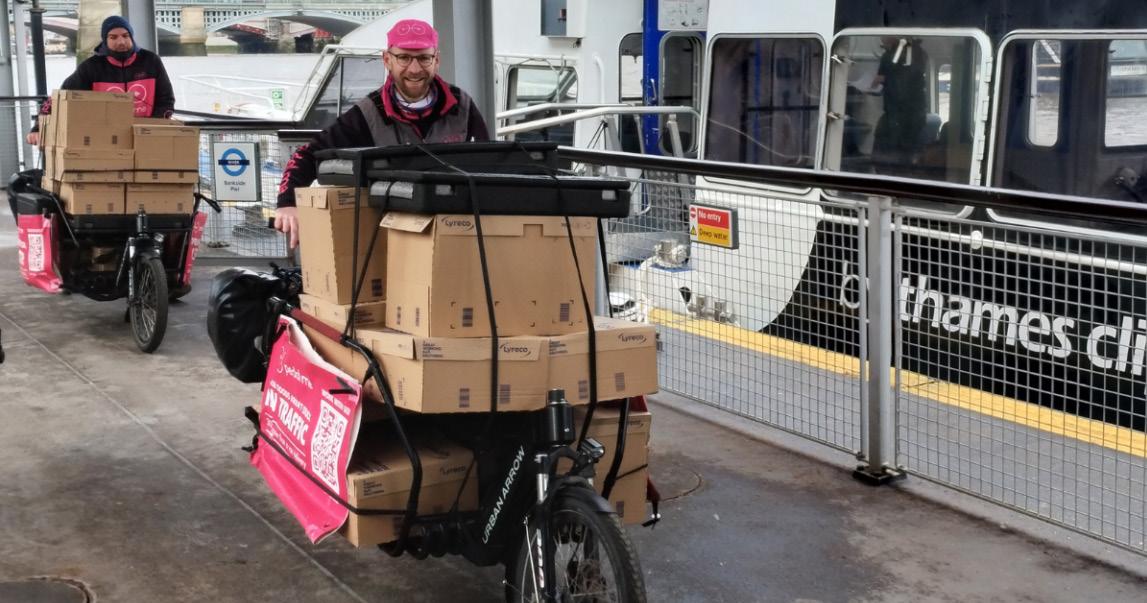
Cross River Partnership (CRP) is a non-profit and impartial partnership organisation that has been delivering innovative projects in London since 1994. CRP’s vision is to make London a better place to live, work and visit. CRP supports public, private and voluntary organisations to address creatively challenges around Air Quality, Transport, Placemaking and Wellbeing.
CRP Purpose
CRP was originally set up to deliver physical infrastructure projects including the Millennium Bridge and the Golden Jubilee footbridges over the River Thames. Since then it has worked with partners to introduce lighting, art and businesses into railway viaducts and arches (Light at the End of the Tunnel); support workless Londoners into employment (Recruit London); and more recently, to tackle poor Air Quality. All of these projects have required partnership working across geographical, institutional and sectoral boundaries. CRP’s partner body continues to grow and all of these partners are represented on CRP’s Board, which is co-chaired by Keith Bottomley, deputy policy chairman at the City of London Corporation, and Simon Pitkeathley, chief executive of Camden Town Unlimited and Euston Town Business Improvement Districts (BIDs). CRP’s accountable body is Westminster City Council.
Cleaner freight operations
Freight vehicles make up 15 per cent of London’s total vehicle miles but emit one quarter of London’s overall transport carbon emissions. In London, 9,400 premature deaths are attributed to poor air quality and a cost of between £1.4 and £3.7 billion a year to the health service. With continued changes to shopping behaviour that have been exacerbated by the pandemic, the number of parcels delivered in London is expected to double by 2030.
CRP is currently focussing on unlocking potential and transforming space to support the logistics sector in London with alternative, non-road freight modes including rail and river. These freight solutions are all designed to make London fairer, greener and safer.
CRP and rail freight
CRP’s latest Rail Freight Study, On track for sustainable logistics: Integrating Rail Freight into London’s deliveries, investigates the opportunity to use existing infrastructure in the London boroughs of Southwark and Lambeth to support efficient and sustainable movement of freight into Central London using rail.
CRP investigated
whether London’s rail network can support more of the city’s freight. Transporting more goods by train would reduce the number of polluting vans on London’s roads, improving air quality and people’s health. The rise of low-volume, high-margin markets requiring fast delivery, such as fast-fashion, were identified as being suitable for fast rail freight.
4,000 tons of carbon dioxide (CO2) could be saved each year by using rail freight, which could take 8,300 HGVs off the road.
CRP commissioned this study with the Great British Railways Transition Team (GBRTT) as part of the Impact on Urban Health-funded Clean Air Freight (CAF) project, with support from the London boroughs of Southwark and Lambeth. This report explores how moving freight goods by rail can support their goals of reducing polluting road-freight vehicles and achieving better air quality for the residents of London.
CAF explores how to prepare for more rail freight deliveries into London, including investigating the potential of passenger trains to carry freight, and also trial zero emission last mile logistics from a potential Freight Hub at Waterloo Station. Steer carried out this research, which
4,000 tons of carbon dioxide could be saved each year by using rail freight, which could take 8,300 HGVs off the road
follows on from CRP’s recent rail freight feasibility study, completed in June 2022.
The study identifies two concepts for a rail freight trial. The first is ‘Passengers as Parcels’, which involves using existing high speed passenger services to move low volumes of goods into and out of stations in London.
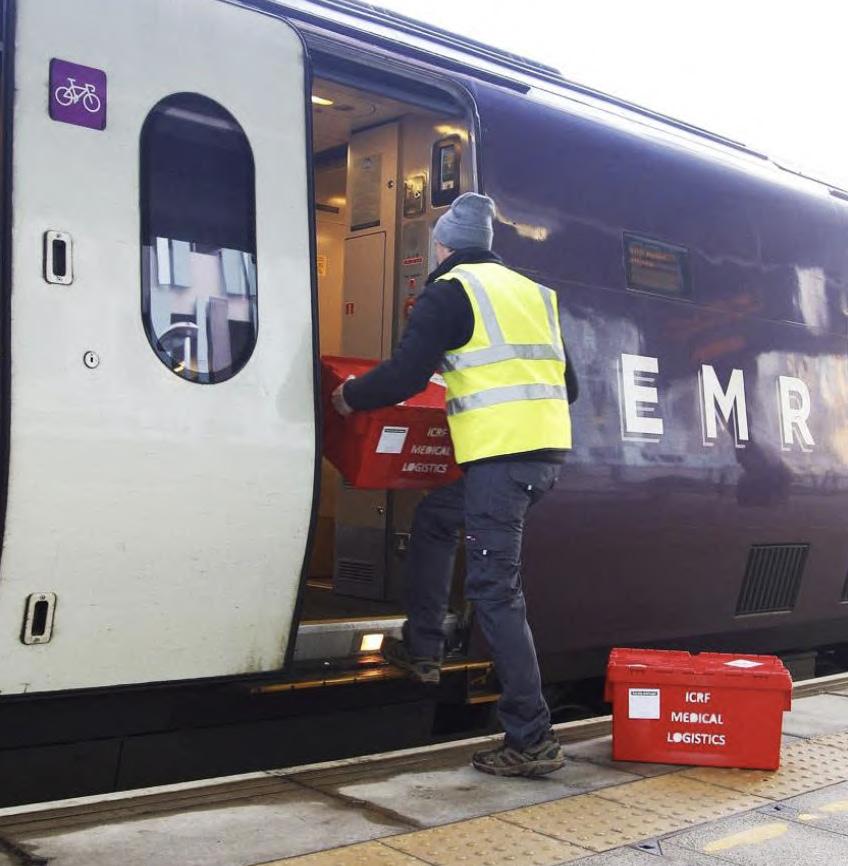
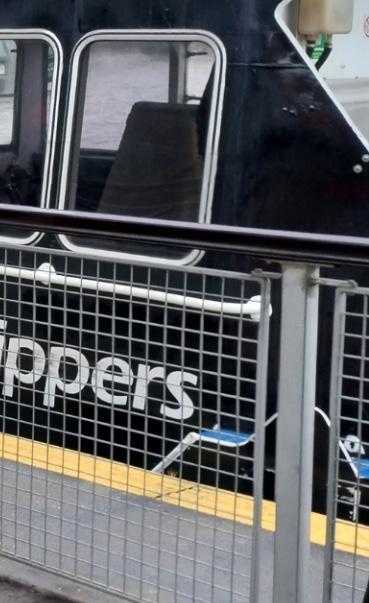
The second is a ‘Dedicated Freight Multiple Unit (FMU)’, which uses a converted high-speed passenger train to transport high volumes of goods from freight hubs into and out of London stations.
The study revealed interest from the logistics market in both concepts, to realise fast, same- day delivery into London. London Waterloo Station has been shortlisted as a good potential location for trials to take place in accommodating increased rail freight.
Amandeep Kellay, portfolio manager, Impact on Urban Health, said: “Air pollution has devastating effects on people’s health. It particularly affects the vulnerable people in our communities, like children. While the movement of goods into and around London is essential, these deliveries significantly contribute to poor air quality. A bigger role for rail in transporting freight into London would mean fewer lorries and vans entering London, faster deliveries, and cleaner air for all. This research shows that improving air quality is the right thing for our health and business.”
Lord Peter Hendy of Richmond Hill, Chair of Network Rail, said: “Great British Railways Transition Team are pleased to be supporting Cross River Partnership’s study into how Express Railfreight can positively impact emissions from the logistics sector. Rail freight presents a great opportunity to reduce transport pollutants across London through fewer vans and lorries on our roads, providing better air quality for all through the rail network.”
Councillor Rezina Chowdhury, Cabinet Member for Sustainable Lambeth and Clean Air at the London Borough of Lambeth, said:
“We have a collective plan as a borough to tackle the climate emergency here in Lambeth, and to do it fairly and swiftly. This includes achieving zero direct emissions from freight, delivery and trade by 2030, an aim that this shift directly supports.”
CRP is looking forward to working with partners to get Rail Freight Trials underway.
CRP and River Freight
CRP has already launched the London Light Freight River Trial; London’s first daily, multi-supplier, river freight trial along the Thames. This forms part of the Defra-funded Clean Air Logistics for London project.
CRP has been working with the Port of London Authority, Lyreco UK & Ireland, Speedy Services, Thames Clippers Logistics, Grid Smarter Cities and Pedal Me to deliver the trial, which officially began on Monday 27th of February. The trial serves the next day delivery market and also incorporates return deliveries, highlighting how the river can enable fast, efficient and consistent deliveries in a more sustainable way.
The trial is being delivered in two phases, both leaving from Dartford International Ferry Terminal and taking approximately one hour to reach central London’s Bankside Pier. Phase 1, which was completed on 10th March, called at Bankside pier only, whilst Phase 2, called at both Trinity Buoy Wharf and Bankside pier. For both phases, Cargo Bikes and Electric vehicles were used to deliver goods from the piers to their final destinations. At Bankside Pier, this was supported by the new dynamic
loading bays which form part of the Kerb Dock project looking at the viabilities of unloading/ loading activities near pier locations.
The trial is also the first river freight trial to incorporate return deliveries with returns being picked up at each pier location in addition to goods being unloaded.
Bringing goods into central London via the Thames is proven to emit less than half of the carbon of road transport, improving local air quality and congestion. CRP’s previous river freight trial found that the using the river for freight resulted in a 78 per cent saving in NOx and an 88 per cent saving in CO2 in comparison to traditional road-based delivery methods.
Sean Collins, chief executive Officer, Thames Clippers Logistics said: “It is becoming increasingly slow, difficult and expensive for businesses to move their products into central London. We have long believed in the untapped potential for the Thames to offer a fast and reliable route into the heart of the city, with the added benefit of removing commercial vehicles from the highly congested London roads. We have 24 years of experience in providing highspeed river transportation across London for commuters and visitors using the Thames, so we are excited and committed to delivering a rapid, sustainable logistics solution to meet the future needs of our Capital.” L
Bringing goods into central London via the Thames is proven to emit less than half of the carbon of road transport
Totalkare’s in-ground brake tester is built to meet the toughest of vehicle inspection centre or workshop requirements. It can be installed as a standalone application, across an existing pit or as part of an Authorised Testing Facility (ATF) lane. Totalkare can manage any necessary civil works on your behalf. Mobile brake tester options are also available for those with limited space.
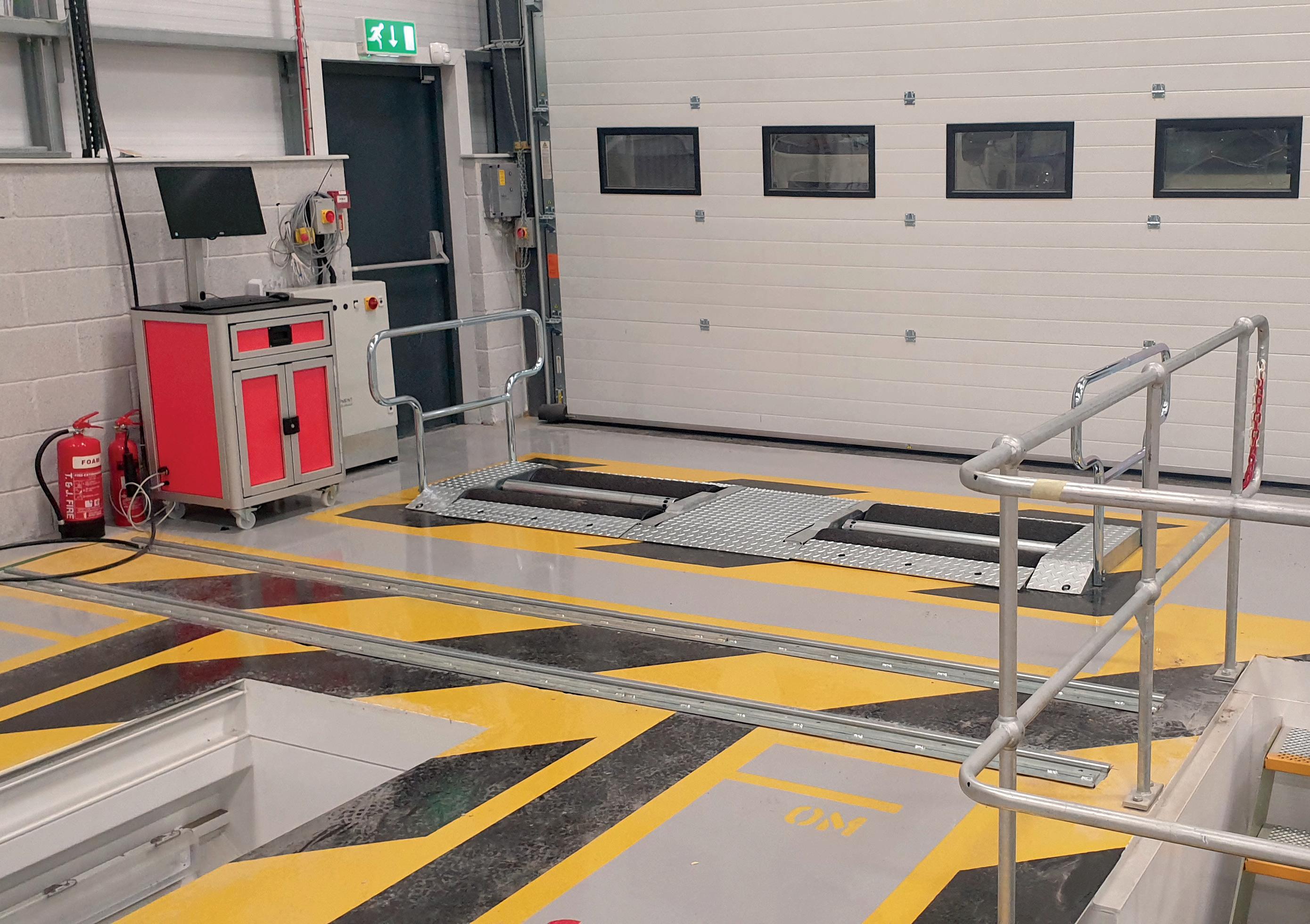
TAKE
With businesses across the UK kickstarting the transition to hybrid or full electric vehicle (EV) solutions for their fleet, the demand for charging facilities and solutions has increased. Power-2GO introduced EcoFlow to the UK in 2020, and have since established themselves as the leading authority on EcoFlow’s portable, onboard and home back up solutions.
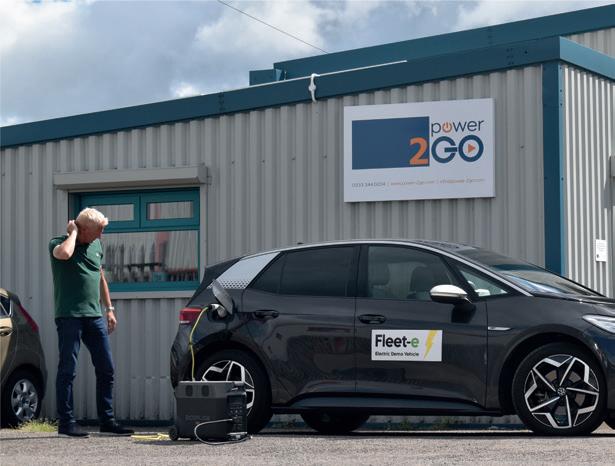
EcoFlow’s DELTA Max and DELTA Pro models have the facility to reduce range anxiety for EV drivers, offering a charging solution when faced with the urgent need to get essential miles into your vehicle.
The EcoFlow DELTA Range can be charged up via AC in as little as 1.6 hours, but can also be charged via solar. The DELTA Pro model has the additional advantage of being able to charge at an EV charge point, utilising an EcoFlow X-Stream Adaptor.

The DELTA Max and DELTA Pro models can provide EV vehicles and fleets with more than just an electric jerry can solution. With an output of 2400W and 3600W respectively, the DELTA Max and DELTA Pro units provide its user with unrivalled portable power access, ensuring your equipment remains charged whilst you’re on the move.

Users can monitor their DELTA device usage via the EcoFlow app, which provides real-time data allowing you to see clearly your run time, charge time and battery percentage.
5% OFF EcoFlow DELTA Max and DELTA Pro
info@power-2go.com www.power-2go.com

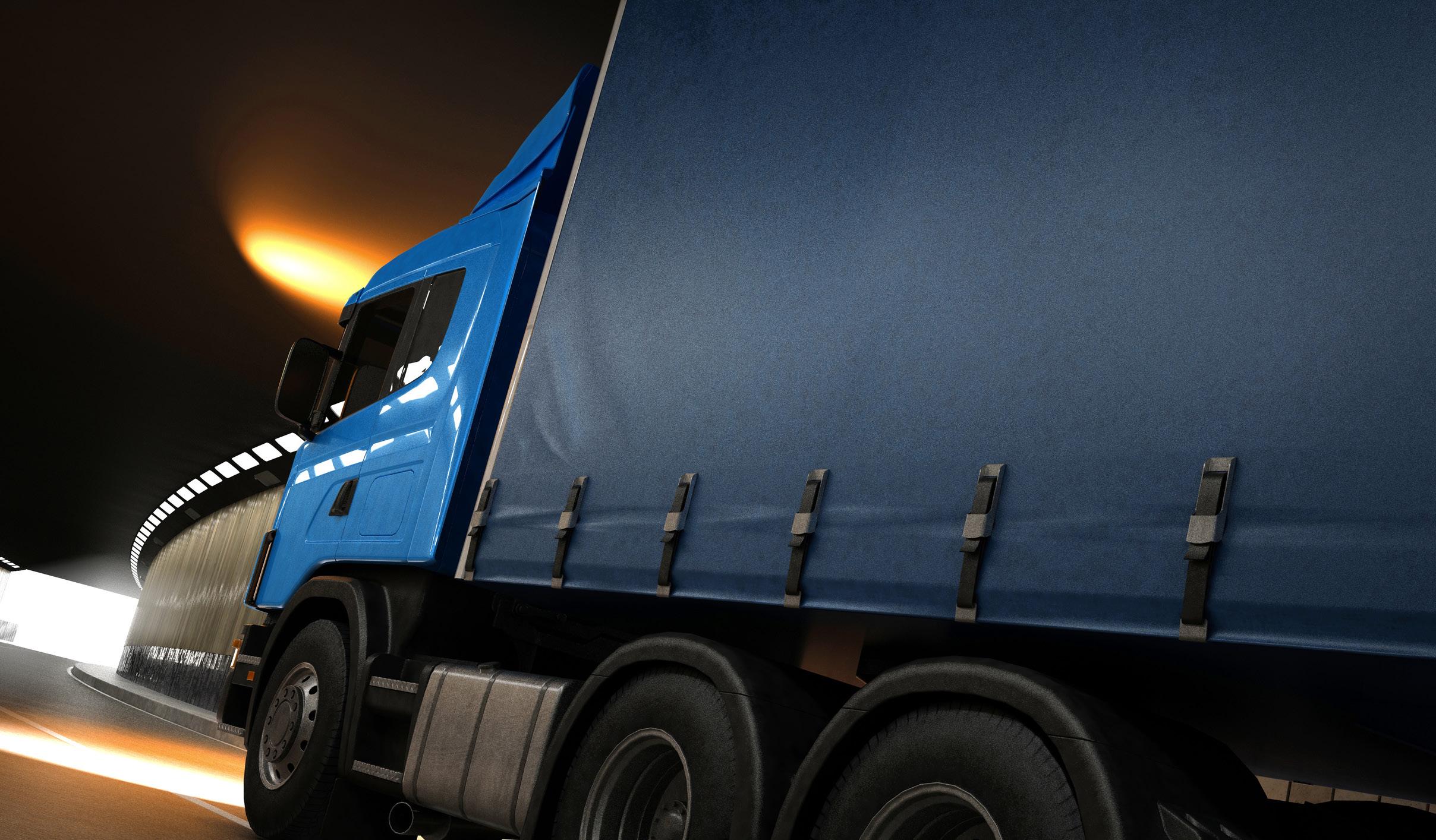
The Logistics Living Lab project from Digital Catapult aims to cut the carbon emissions of empty and near-empty delivery trucks on the road using innovative technology.
The project comes as road freight transportation and removal services produced 11.5 million metric tons of carbon dioxide emissions in 2020, threatening the progress in the UK to reach net zero by 2050.
Freight accounts for 31 per cent of all UK transport CO2 emissions, and these emissions are the main driver of climate related risks including climate change and extreme weather.
This is where the Logistics Living Lab will make a difference, by leveraging emerging technologies including distributed ledger technology (DLT) and the internet of things (IoT) to reduce the number of empty trucks releasing pollutants into the atmosphere on roads across the country.
The Logistics Living Lab will see the development of a shared digital infrastructure for more intelligent management of vehicle slot filling, routing, and tracking to allow competing logistics providers to safely share information on available truck space across their collective fleets, without the need for a single party needing full control or visibility of the whole system.
The infrastructure, underpinned by DLT, aims to deliver greater coordination across the logistics sector without compromises to commercial sensitivity and security of data, while enabling greater operational efficiency.
A consortium with the same goal
The project brings together five leading digital innovators including Vodafone Digital Asset Broker, Microsoft, Yusen Logistics, Fuuse, and Parity Technologies. Digital Catapult are leading the consortium of companies, with a shared goal of reducing emissions and increasing capacity utilisation, as it looks to encourage broader adoption of sustainable innovation in business and industry. The project will run until September 2024.
The Logistics Living Lab project is part of Digital Catapult’s Made Smarter Innovation Digital Supply Chain Hub which aims to make supply chains more efficient, resilient and sustainable by developing and promoting the adoption of advanced digital technologies in supply chains across the UK. It comes as a more practical approach to solving UK manufacturing and logistics challenges is needed, including the reduction of road congestion, improvement of customer experience, and bringing the UK closer to its net zero ambitions.
Tim Lawrence, director of the Digital Supply Chain Hub, said: “Manufacturers are facing unprecedented cost and risk pressures across all areas of their businesses, especially in their supply chains from increasing costs of energy, labour and logistics. There is growing demand from businesses to make supply chains more sustainable and this logistics project can play a key role in demonstrating the benefits of working together to achieve this.”
Leo Pickford, head of business change at Yusen Logistics, said: “Our customers, who are often operating on wafer thin margins, need to find ways to reduce costs and cut emissions. Given that 25 per cent of trucks still run empty, whilst a significant amount of operational planning is done at the last minute, logistics optimisation, particularly in Shared User Transport (SUT), is a key area where operational efficiency can be realised. “This project allows logistics companies like ours to collaborate and still compete in new and more efficient ways, with new business and governance models allowing logistics companies to work together to mutual advantage, reducing costs while working towards a more sustainable future.” L
FURTHER INFORMATION
www.digicatapult.org.uk

The Goupil G4 is ideally suited to improve access into low emission zones, cities and town centres. With 11 different body configurations there is a Goupil to suit a number of applications.
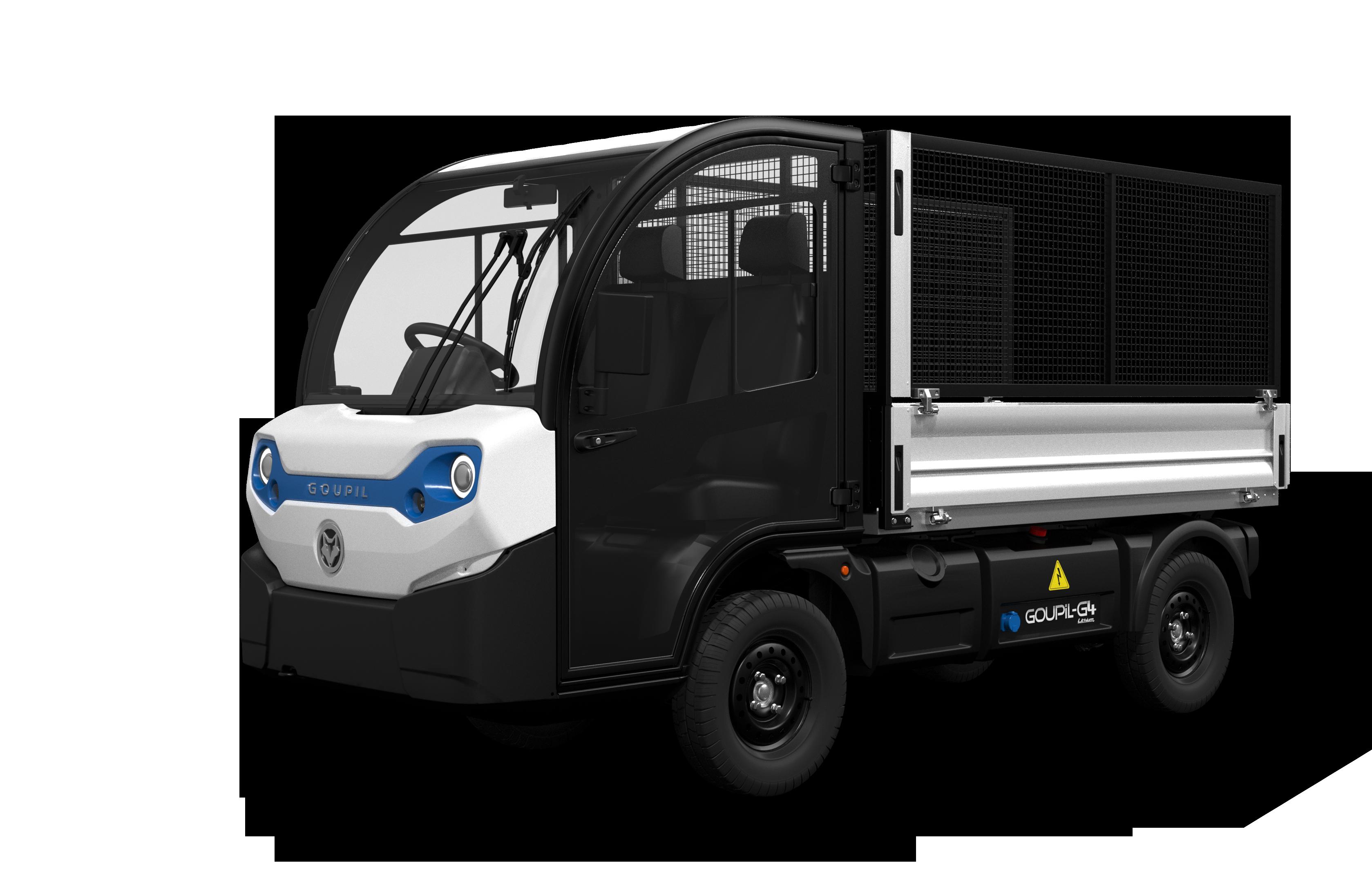

The Road Transport Expo, which takes place on 28-30 June in Warwickshire, combines a vast exhibition of the latest trucks, equipment and fleet services, along with a free-to-attend Knowledge Zone conference to find out about the latest issues affecting the HGV sector
This summer’s bumper trade show, Road Transport Expo (RTX), is shaping up to be an unmissable event for anyone that works in the road transport sector. With its ‘all about the truck’ mantra, it combines a vast exhibition of the latest vehicles, equipment and fleet services with a free-to-attend drop-in Knowledge Zone conference.
All the major HGV OEMs will be at the show – DAF, Iveco, Isuzu Trucks, MAN, Mercedes-Benz, Renault Trucks, Scania and Volvo – with their latest vehicle ranges to explore on the stands or take for a test drive over at the Ride & Drive zone (or simply a ride in the passenger seat if you prefer).
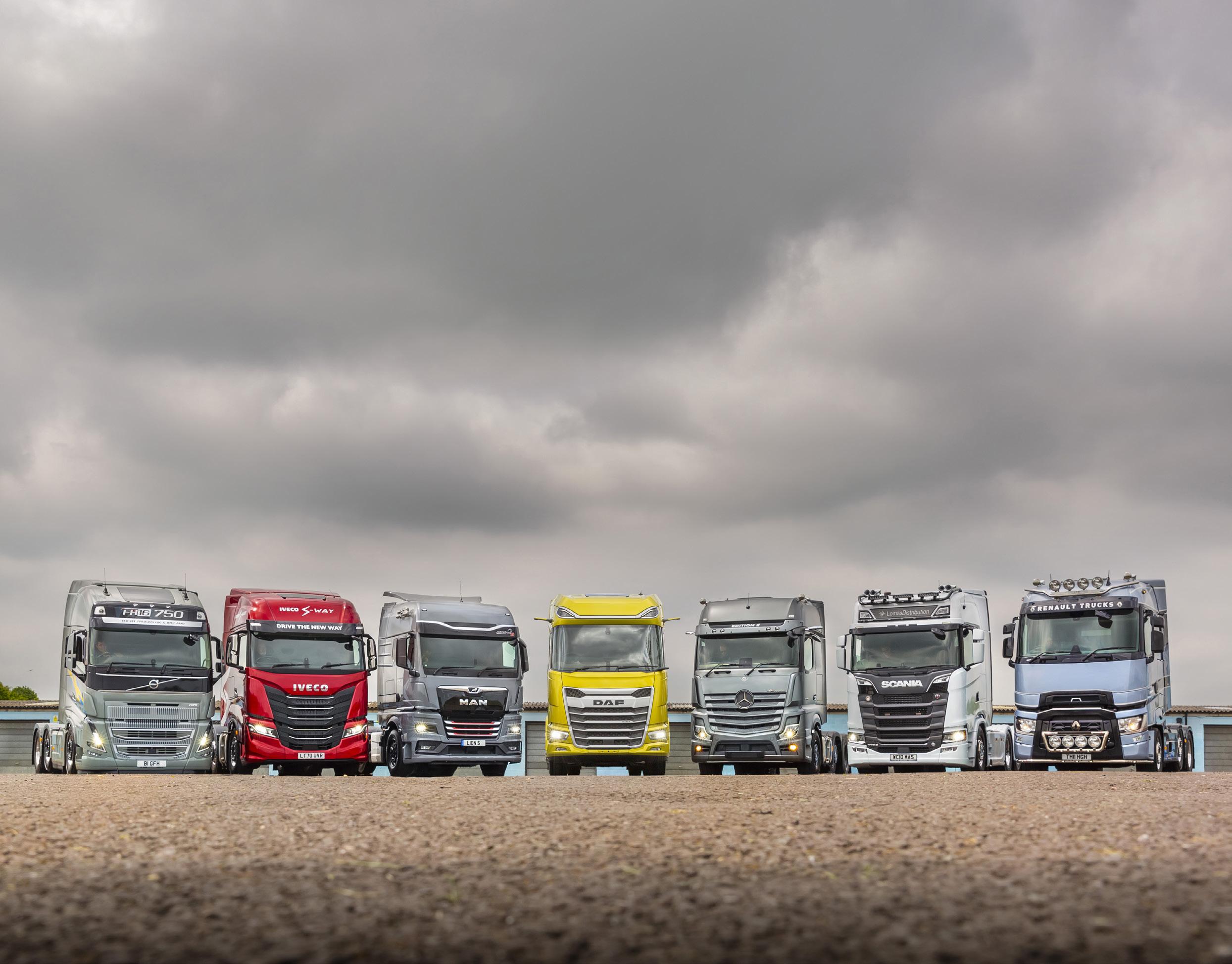
RTX is also a perfect opportunity to catch up with your industry colleagues and make those all-important new business connections.
A major emphasis has been placed on the visitor experience and we will be pulling out all the stops to make sure you get the most from your time at the event. There will be tasty food outlets, including an on-site farm shop; plenty of seating areas to relax with colleagues or meet with new customers; easy signage and navigational tools; and a free shuttle bus to transport you from the venue to key local train stations.
“We can’t wait to welcome visitors to RTX this summer,” said Vic Bunby, divisional director at show organiser DVV Media International.
“With more exhibitors and an enhanced visitor experience, we believe the event provides an ideal platform for fleet operators to explore the latest technology, while networking with industry peers. We do hope to see you all there this June!”
To make the most of your day at RTX, why not take a browse on roadtransportexpo.co.uk to help you decide which stands you’d like to put on your ‘must visit’ list. You can filter by a simple A-Z search of company names, or by product type that you are interested in.
The interactive floorplan, found on the RTX website, will help you locate your preferred stands and see where everyone is placed around the venue.
To help visitors navigate on the day, there will be plenty of clear signage, large maps, a dedicated team of show-makers around the venue, and even a set of electric buggies to whizz you from one outside area to another should you want a ride. And for those preferring to use their phones to find their way around, an RTX app will be available for visitors to download.
This will also keep you in the loop for any exhibitor announcements or product demonstrations taking place on stands.
“We have had terrific engagement with exhibitors about taking part in this year’s RTX,” says events sales director
Emma Tyrer. “Many of them enjoyed a successful show last year and are keen to return, plus we have also had lots of new enquiries from businesses that heard about RTX after its debut and are keen to join us for the first time.
“It really is going to be the perfect onestop-shop for all things truck related and a brilliant day out for anyone in the business of operating an HGV fleet. We can’t wait to throw open the gates this summer and welcome visitors to RTX 2023.”
Last year’s show visitors were delighted with the wide range of exhibitors taking part in RTX, with 92 per cent rating the number of stands to explore as ‘excellent/good’ and a whopping 95 per cent rating the calibre of those companies as ‘excellent/good’. And the exhibitors themselves enjoyed the event, with some glowing things to say about the debut RTX.
Edward Barrie from SMUK said: “The buzz on the first day from visitors and exhibitors was contagious. At last a proper Truck Show!”
Ella Gibbs, senior marketing executive at EQUANS, said: “For EQUANS, the event was a fantastic opportunity for us to exchange knowledge and ideas about green mobility with the commercial vehicle industry. We had many insightful, positive conversations with partners and potential customers, and built invaluable relationships with other exhibitors over the few days.”
The one-stop industry event that’s all about the truck and everything related to it
Following the success of last year’s Road Transport Expo we’re pleased to announce that we will be back at NAEC Stoneleigh from 28-30 June 2023.
HGVs will be at the very heart of everything the show will offer visitors, from the latest models on display and available to ‘ride and drive’ through to informative seminars and live demonstrations.

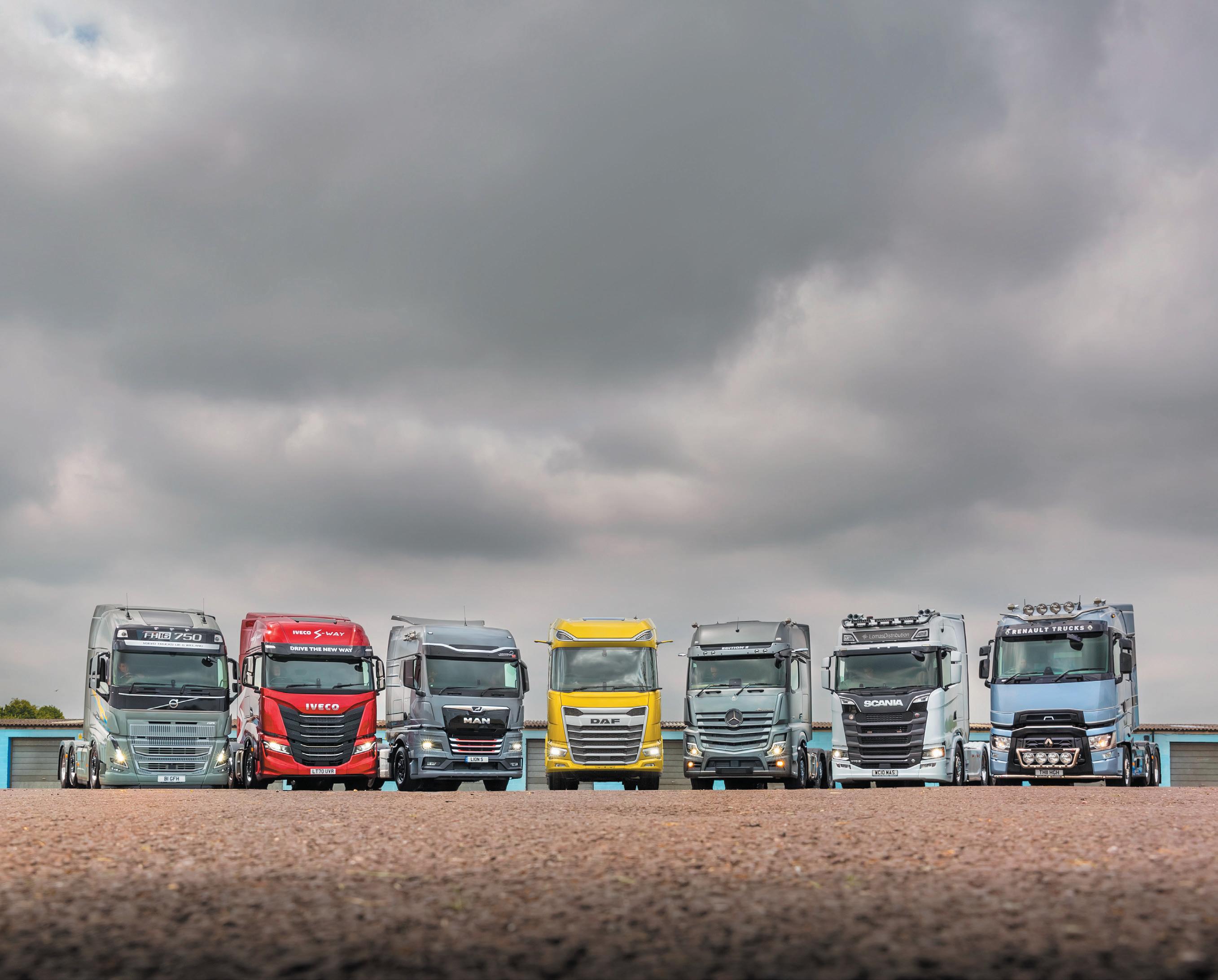
Register for your FREE tickets at roadtransportexpo.co.uk
See the BIG SEVEN at Road Transport Expo 2023
IN ASSOCIATION WITH
Kjell Anderton from Fleet Focus, said: “Road Transport Expo was a great event – it was a brilliant place to network with both potential clients and peers within the industry and great fun for anyone with an interest in trucks.”
Buzzing atmosphere
RTX is also a very sociable event, with plenty of places to sit and relax, or grab a bite to eat or a refreshing beer in the British (we hope!) sunshine. Plus many exhibitors will be pulling out all the stops to engage with visitors heading to their stands. You might be tempted to try the free Guinness and frites over on the Van Hool stand, or grab a pair of sunnies and join the fun Austrian vibe with lighting specialist Aspöck.
Tanker specialist Feldbinder is well-known for its fantastic hospitality stand, while bodybuilder Thompsons will make sure a cool drink awaits on its stand, as will trailer-maker Lawrence David as it looks to celebrate its 50th anniversary with visitors. Hireco and BPW will also be offering visitors tasty food and drink choices if you pay them a visit during your RTX experience.
And this is just the tip of the iceberg of what you can discover at exhibitor stands, from exclusive show offers to fun giveaways and product demonstrations.
“While RTX is a bustling business tradeshow offering a one-stop shop for all your HGV fleet needs, we also want visitors to know it offers a fun, lively atmosphere and a fantastic networking platform,” adds Bunby.
“I can’t wait to see what exhibitors will be bringing along to this year’s show and look forward to exploring the stands, both inside and outside, at the NAEC Stoneleigh.”
RTX takes place from 28-30 June at NAEC Stoneleigh, Warwickshire and is completely free to attend and to park. To register for your place at the ‘show of the summer’, simply head over to roadtransportexpo.co.uk
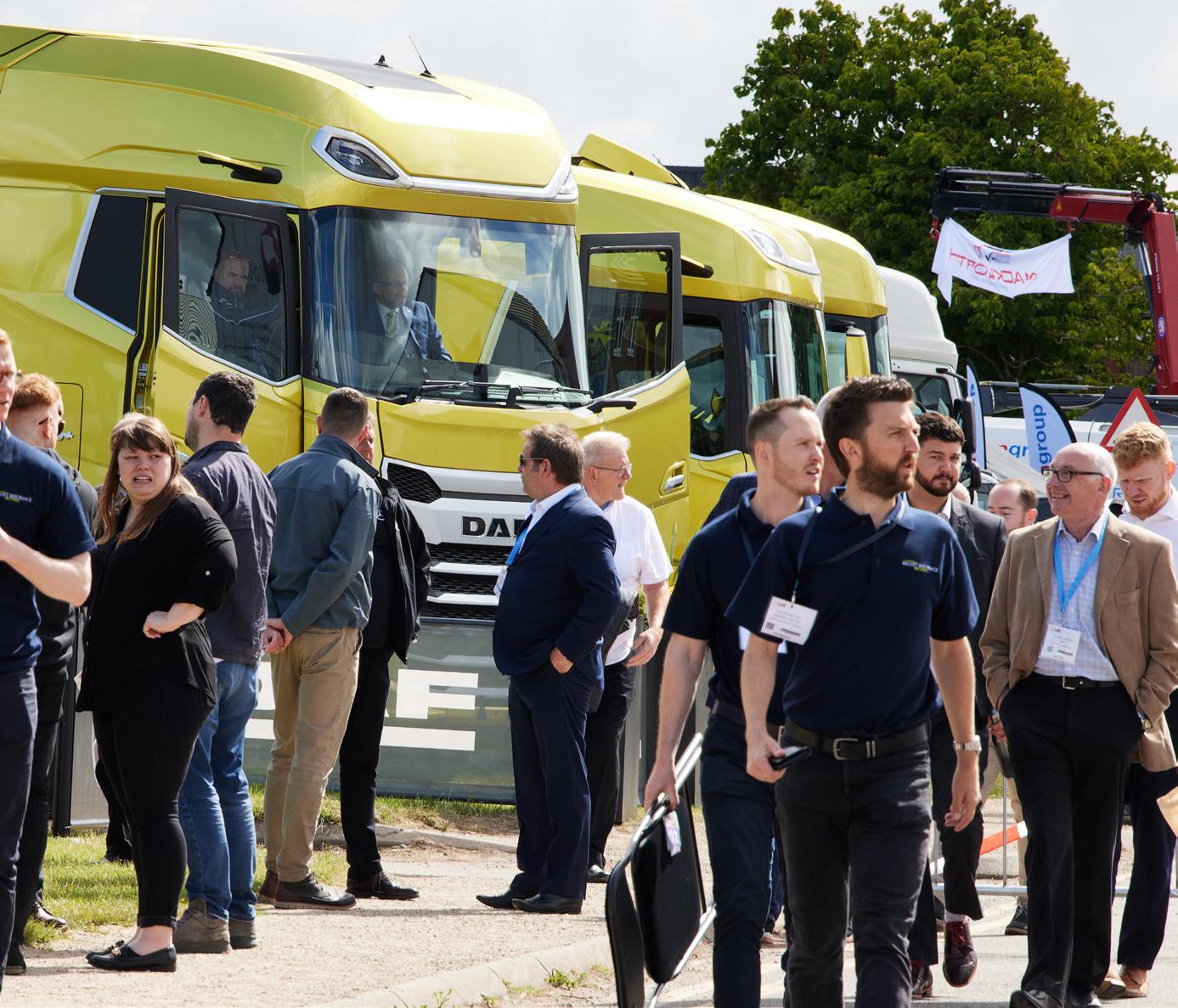
If you hold a valid HGV licence and fancy getting behind the wheel of one of the latest diesel or alternatively-fuelled trucks, then RTX is the show for you. We will be creating a dedicated route for visitors to try out vehicles on the day of their visit, with a wide range from all the leading manufacturers including diesel, biogas-powered and electric models.
Register your interest online when booking your show ticket and we will keep you up to date on how to take part.
And it’s no problem if you don’t want to drive yourself, there will also be a team of professional drivers on hand to take visitors out for a spin to experience the driving experience from the comfort of the passenger seat.
Throughout the show, RTX will be running drop-in sessions on its Knowledge Zone stage. These will be covering a range of topical subjects, from road safety regulations through to fleet decarbonisation and key industry challenges.
Wednesday 28 June
In the morning, you can participate in a series of Transport Compliance Briefings, led by Logistics UK. Sessions explore key regulations including the Direct Vision Standard and Clean Air Zone updates; an insight into the issues being dealt with at the Office of the Traffic Commissioner; an impactful legal insight; and a spotlight on industry skills and training. In the afternoon, you can attend an engaging session hosted by safety specialist SMUK, called ‘Gearing up for Change’, which will look at how the latest technology can keep your business compliant with tightening safety legislation, reduce fleet operating costs and maximise uptime for your HGVs.
Thursday 29 June
The morning’s opening session will focus on the industry’s journey towards a netzero-carbon future, from the position today, to the government’s ambitious targets to phase out sales of new diesel trucks. You will hear from well-known HGV operators about their own experiences with the latest alternative fuels and cleaner ways to deliver goods. There will be an opportunity to find out more about charging and refuelling infrastructure from a panel of experts. You will also be able to join in the discussion about future truck technology, from fuels to servicing requirements, during our exciting ‘Big Debate’ session after lunch with a line-up of major HGV manufacturers.
Friday 30 June
The Knowledge Zone will commence with the presentation of brand-new industry research,
which will drill down into the key challenges facing operators for the year ahead. Drop in and listen to the lively on-stage debate with panellists drawn from the Road Haulage Association, Motor Transport and Asset Alliance. Connected vehicle technology is also on the agenda, as we explore the role it can play in fleet efficiency, safety and compliance, alongside a look at the best ways to manage risk in your operation.
To round of the day’s Knowledge Zone sessions, advancements in diesel technology will be the talking point for Will Shiers, editor of Commercial Motor and his team of experts. L
FURTHER INFORMATION
roadtransportexpo.co.uk
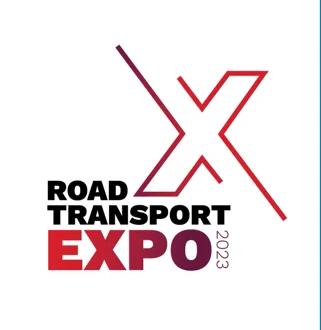
New for 2023 is a careers-focused day on Friday 30 June. Students from 150 schools and colleges will be invited to RTX to learn about future career opportunities available across the road transport sector.
A series of talks and activities will be taking place for youngsters, with exhibitors and manufacturers talking to them about a range of jobs available from on-the-job apprenticeships through to graduate paths.
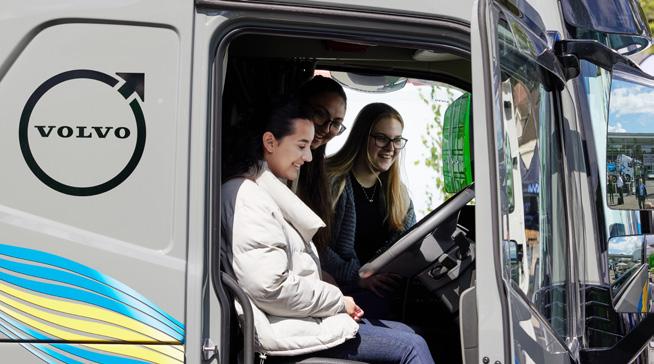
Kevin Walker, technical director at TVS Interfleet has led on the project to launch the UK’s first electric mixer, following a successful three-month trial by Tarmac
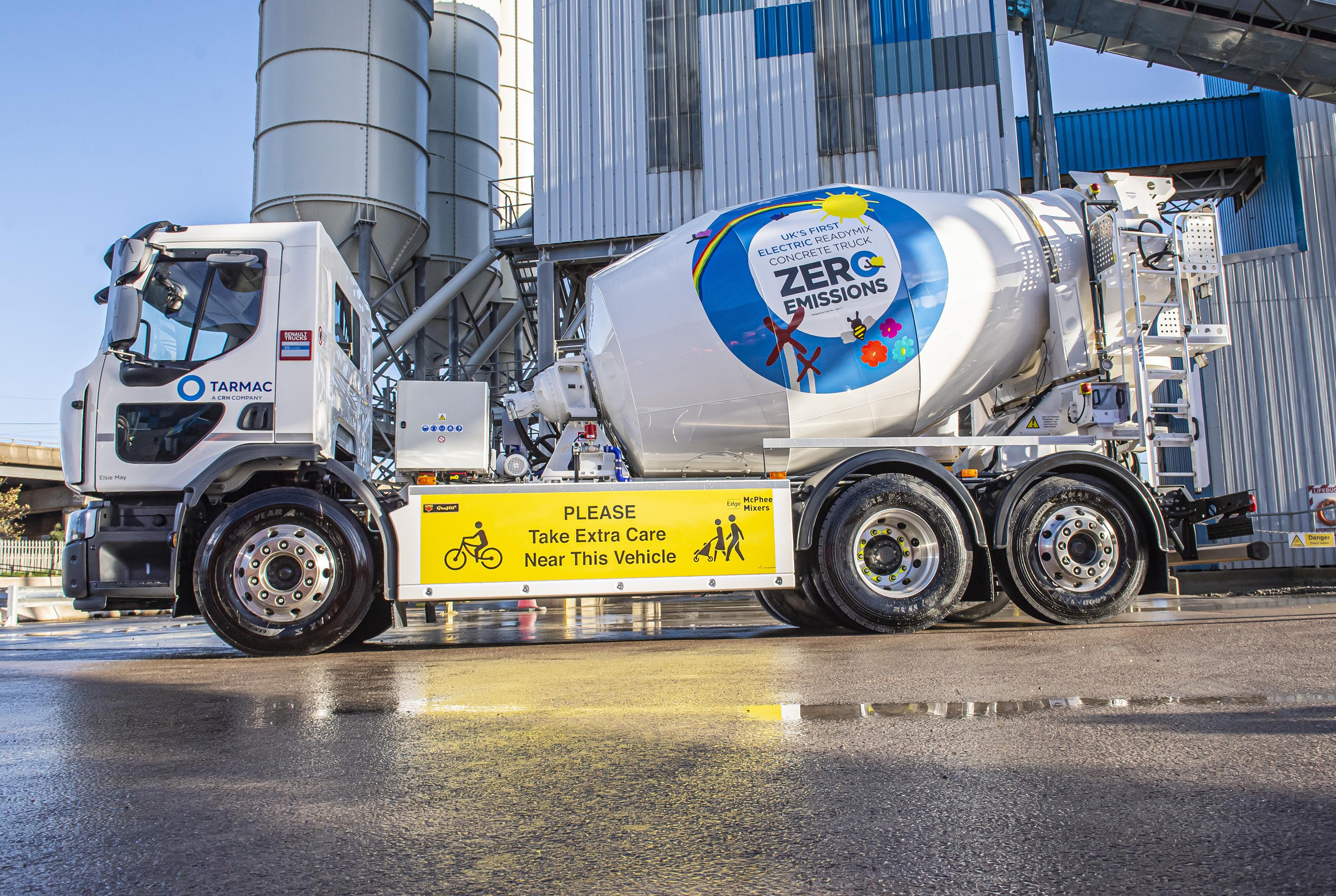
Twenty-five per cent of the UK’s total greenhouse gas emissions are attributed to the built environment, with a pressing need for radical change to meet the government’s 2050 net zero target. At COP26, the UK Government committed the UK to achieving a 68 per cent reduction in the UK’s carbon emissions by 2030, compared to 1990 levels. As part of their decarbonisation strategy, Tarmac is committed to leading the way and initiated a Supplier Innovation Challenge – where suppliers submit ideas to decarbonise the built environment sector. We and Renault Trucks submitted a proposal to develop the UK’s first fully electric mixer. As concrete mixers typically operate in urban areas, it was a logical place to develop a solution that would move towards reducing construction carbon emissions. With experience and unrivalled history in manufacturing mixers, we knew a lot about how current diesel mixers operated but that little development had taken place that would allow us to move the technology on to hit the brief of launching the UK’s first electric mixer. To be able to do this, we had to challenge every element of our conventional mixer
design, its interaction with the vehicle chassis and how it operated. Along with our partners, Tarmac and Renault Trucks, we spent months in research and development.
What did we explore?
We did a review and analysis of the multiple British standards for concrete production to better understand how the drum needed to operate. Our team also delved into customer expectations regarding the quality of concrete slump, which was crucial for the project’s success as it provided information for the development of the drum operation and what was needed to deliver the same – or even greater – quality of concrete as traditional mixers whilst ensuring operational efficiency.
It was critical that we understood how the mechanics of ICE-mounted concrete mixers operated in the field. To be able to do this, we used multiple sensors and data
loggers to extract energy usage over a period of months. This data was then studied to see how energy consumption could be reduced when mounted and operated through a battery electric vehicle. This was crucial to the project’s success, and the e-mixer being comparable with its diesel counterparts. We also investigated what options we had around the water tank position that would help to deliver a lower centre of gravity, as well as how we could improve the safety of the mixer. We did this by meticulously reviewing hours of mixer rollover footage to identify and comprehend the critical factors in near misses. This allowed us to identify and comprehend the key influencers on drum behaviour during rollover situations. We were able to use the information to develop mechanical, and software-led inventions that have increased safety by a factor of three when it comes to rollovers.
TarmacfromResultsthe trial are positive, with the e-mixer saving five tonnes of CO2 from being released
Along with this research and development, we were also able to look at other areas such as the material used for manufacture of the mixer. By choosing new materials, we were able to reduce the kerb weight to be able to carry a 5.8m3, allowing the e-mixer to deliver a typical payload equivalent to its ICE counterpart.
Having developed a completely new control system (HMI) and drive for the e-mixer, the result is a mixer that features no less than seven new patents. These can be used on future electric mixers, while some inventions can also be transferred to diesel-powered trucks. Above and beyond the electrification and decarbonisation of the vehicle, it has also realised several other benefits, as described below.
With the water tank repositioned, the e-mixer has a lower centre of gravity for improved stability. This feature is also in conjunction with the drum rotation being electronically controlled and an improved drum restraint system which will help keep the drum in position in case of a roll-over. Previously, a 0.5G force would dislodge the drum but thanks to the new design, the figure has increased to 1.5G. These developments will also be transferred over to our diesel models.
Efficiency
The e-mixer drum rotation speed is computercontrolled, optimising energy consumption for loading, unloading and transit of different
types of concrete mix. The reduction is drum rotation should result in less wear and tear, so the drum can operate for a longer period, reducing cost over the vehicle’s life.
As the mixer is fully electric, noise has been reduced while having zero tailpipe emissions, which are two key considerations on all construction sites. Having zero tailpipe emissions allows for the e-mixer to be driven inside of buildings without the need for extraction fans for diesel fumes. In fact, the e-mixer has been so successful in reducing noise, that for precautionary safety reasons, a white noise sound is being retrofitted for going forwards and backwards.
The e-mixer has just completed a successful three-month real-world trial and is now in full operation from Tarmac’s Washwood Heath site. Results from the trial are positive, with the e-mixer saving five tonnes of CO2
from being released. In full operation, the e-mixer expected to save 42 tonnes of CO2 annually, with zero emissions per mile compared to 1.55 kg of CO2 per mile for its fossil fuel equivalent. As well as savings in carbon emissions, e-mixers also offer the construction sector further benefits, including being exempt from ULEZ zones, with significant cost savings on offer when running a fleet within urban areas. We’re already working on further advancements to the e-mixer, including enhancements to the software to allow for the e-mixer drum to be operated and controlled remotely. Many of these innovations are also being considered for application to diesel models, extending their benefit beyond their BEV starting place. L FURTHER
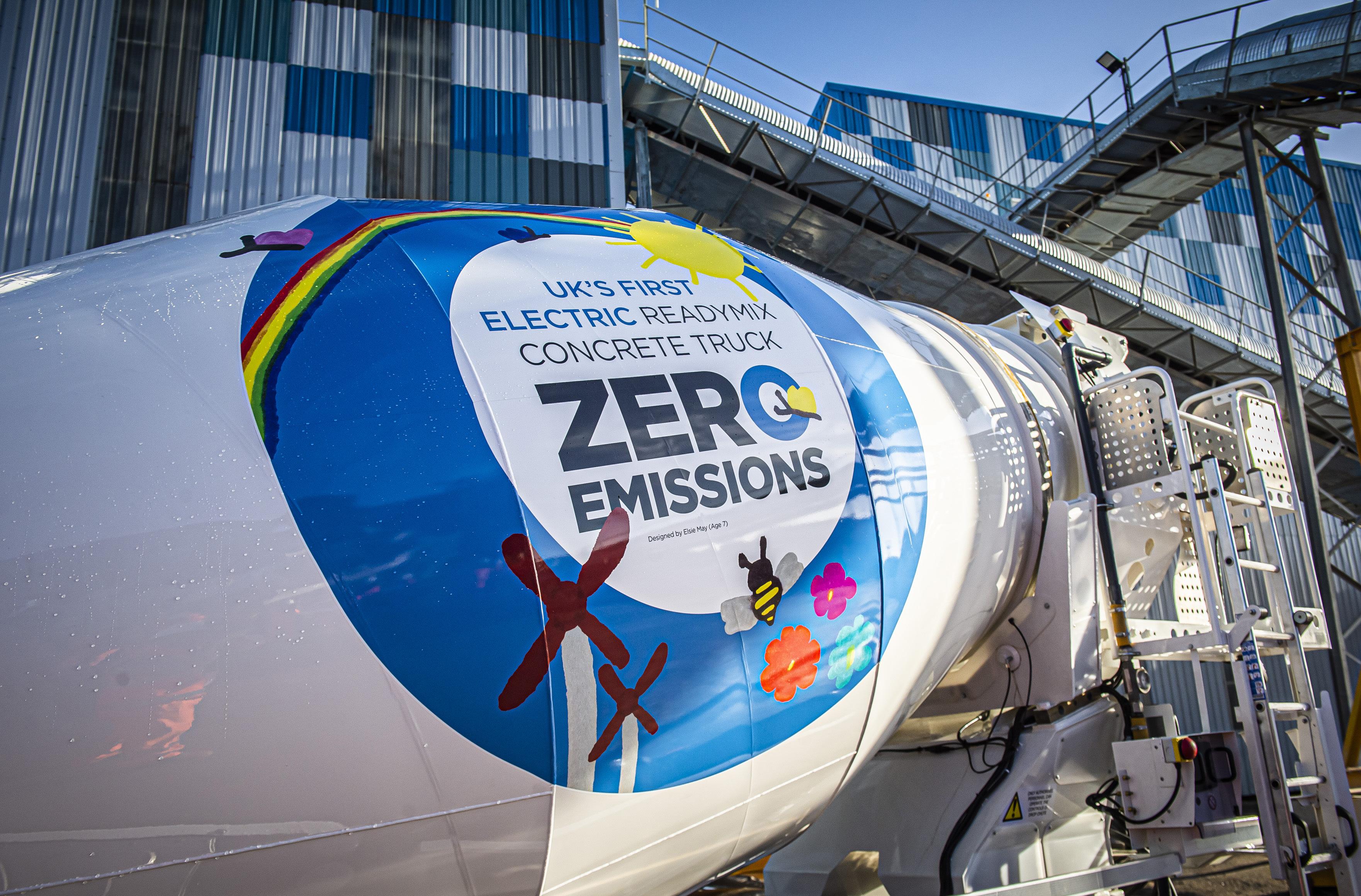
As the mixer is fully electric, noise has been reduced while having zero tailpipe emissions, which are two key considerations on all construction sites. Having zero tailpipe emissions allows for the electric-mixer to be driven inside of buildings without the need for extraction fans for diesel fumes
Is the UK really doing everything it can to maintain momentum and realise hydrogen opportunities?
Harsh Pershad, head of hydrogen at Tevva, takes on the debate
The UK Hydrogen Strategy estimates that to meet Net Zero aims by 2050, hydrogen will make up 20-35 per cent of the UK’s final energy demand (250-460 TWh a year). Hydrogen therefore has a critical role to play in the decarbonisation of industry, power, heat and transport.
Yet in her recent report, the UK Hydrogen Champion Jane Toogood found that there is a need for greater clarity on policy decisions for hydrogen users, the funding available and the delivery of the government’s plans for hydrogen to 2030 and beyond.
The report says: “Through extensive engagement with over 100 stakeholders, a strong common theme has emerged around the need for greater clarity on upcoming policy decisions for hydrogen users, the funding available and overall delivery of the hydrogen roadmap to 2030 and beyond.”
So, is the UK really doing everything it can to maintain momentum and realise hydrogen opportunities?
Tevva’s area of expertise – transport – will have a critical role to play in our country’s decarbonisation goals. Worldwide around a
fifth of CO2 emissions comes from trucks, and both McKinsey and the Hydrogen Council believe the most competitive use of hydrogen lies in decarbonising trucks. Trucks using batteries or hydrogen fuel cells instead of diesel engines will indeed need to make up the vast majority of new sales by 2040 under plans to reduce CO2 emissions from mediumand heavy-duty vehicles. Yet only around 700 trucks that run on batteries or fuel cells were sold in Europe last year – about 0.2 per cent of the total.
The good news is that the economics of owning and operating electric and hydrogen trucks, their total cost of ownership or TCO, are improving rapidly. And with diesel truck prices set to increase with Euro 7, electrification of our sector could happen sooner than previously thought.
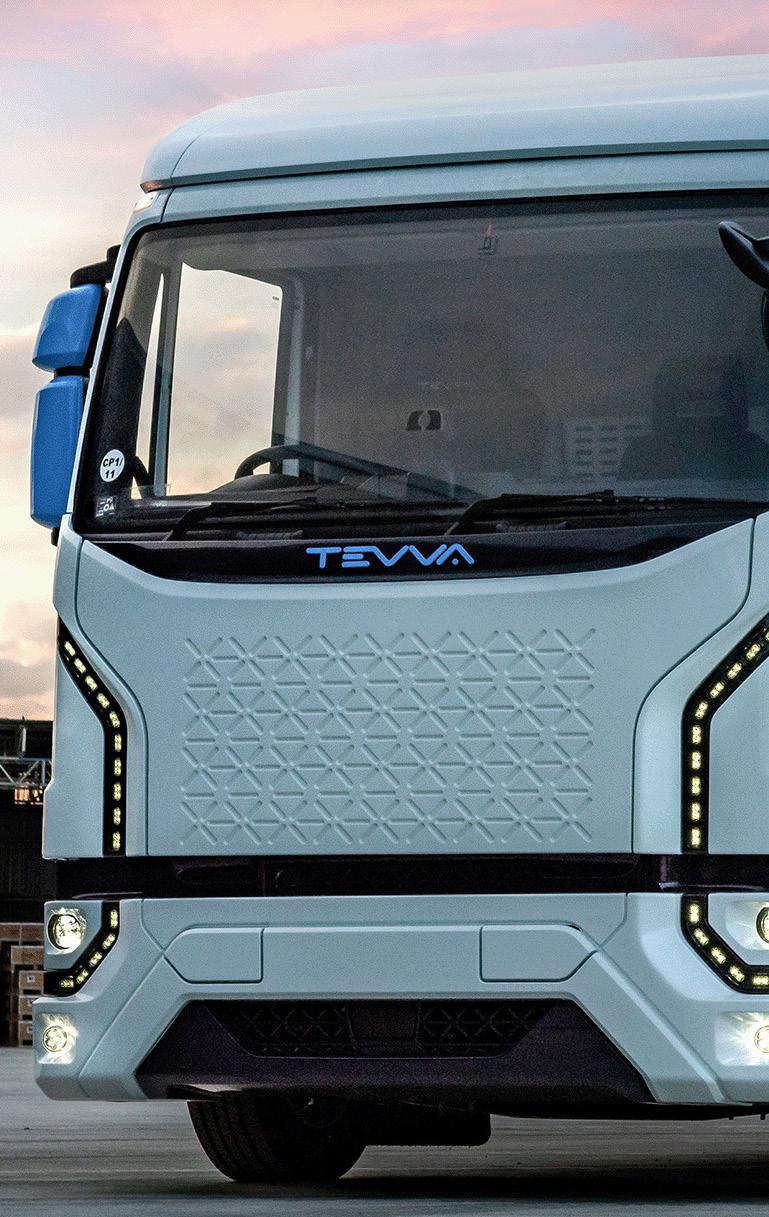
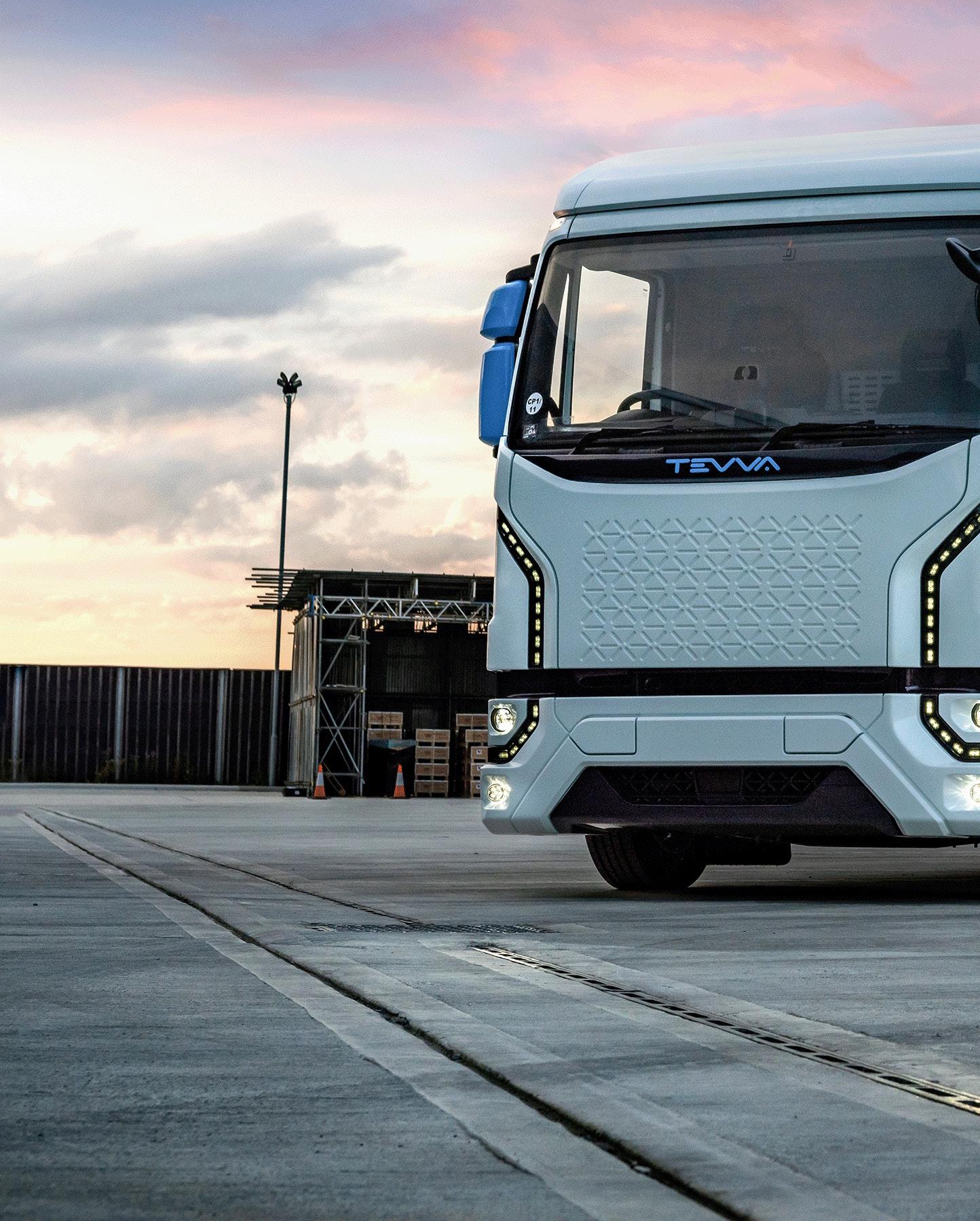
Yet there are still serious challenges around the lack of hydrogen refuelling
stations and the fact that most fleet operators have no experience of hydrogen. In addition many hydrogen suppliers have no experience of truck fleets.
As an early adopter and developer of hydrogen technology, Tevva is playing an important role in demonstrating the potential for hydrogen electric trucks. We showcased our concept prototype 7.5t and 19t hydrogen electric trucks at the IAA in Hanover last year and have been encouraged by the high level of interest in these dual energy vehicles.
In January we took the 7.5t prototype on a ‘border run’ to Berwick-on-Tweed, England’s northernmost town. On the way up we stopped at an Element 2 refuelling station in Teesside, and the return journey saw us cover almost 350
The UK thatChampionHydrogenfound there is a need for greater clarity on policy decisions for hydrogen users
miles without needing to stop at all. This was made possible by the truck’s hydrogen fuel cell which tops up the range-extended vehicle’s lithium battery when needed.
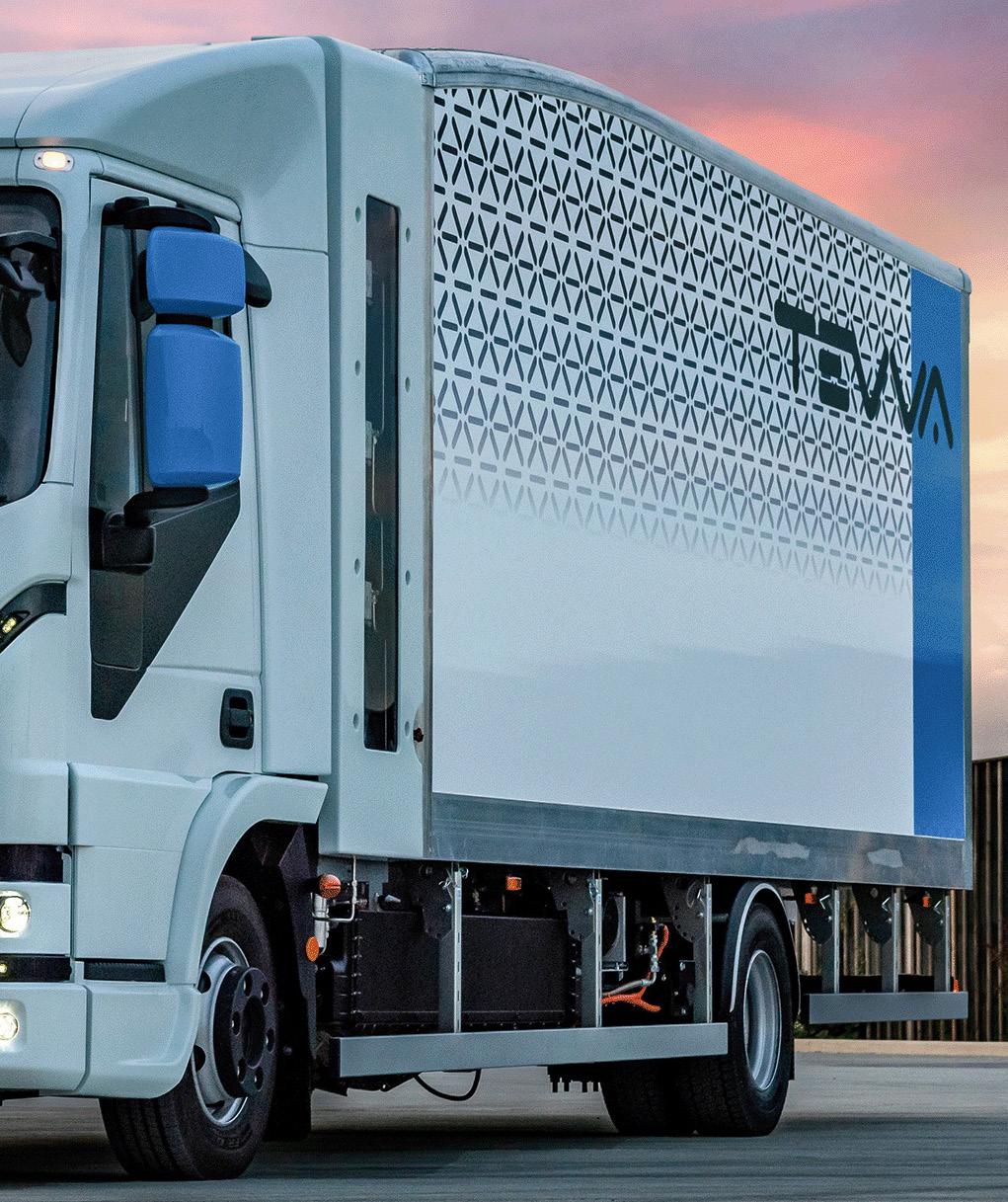
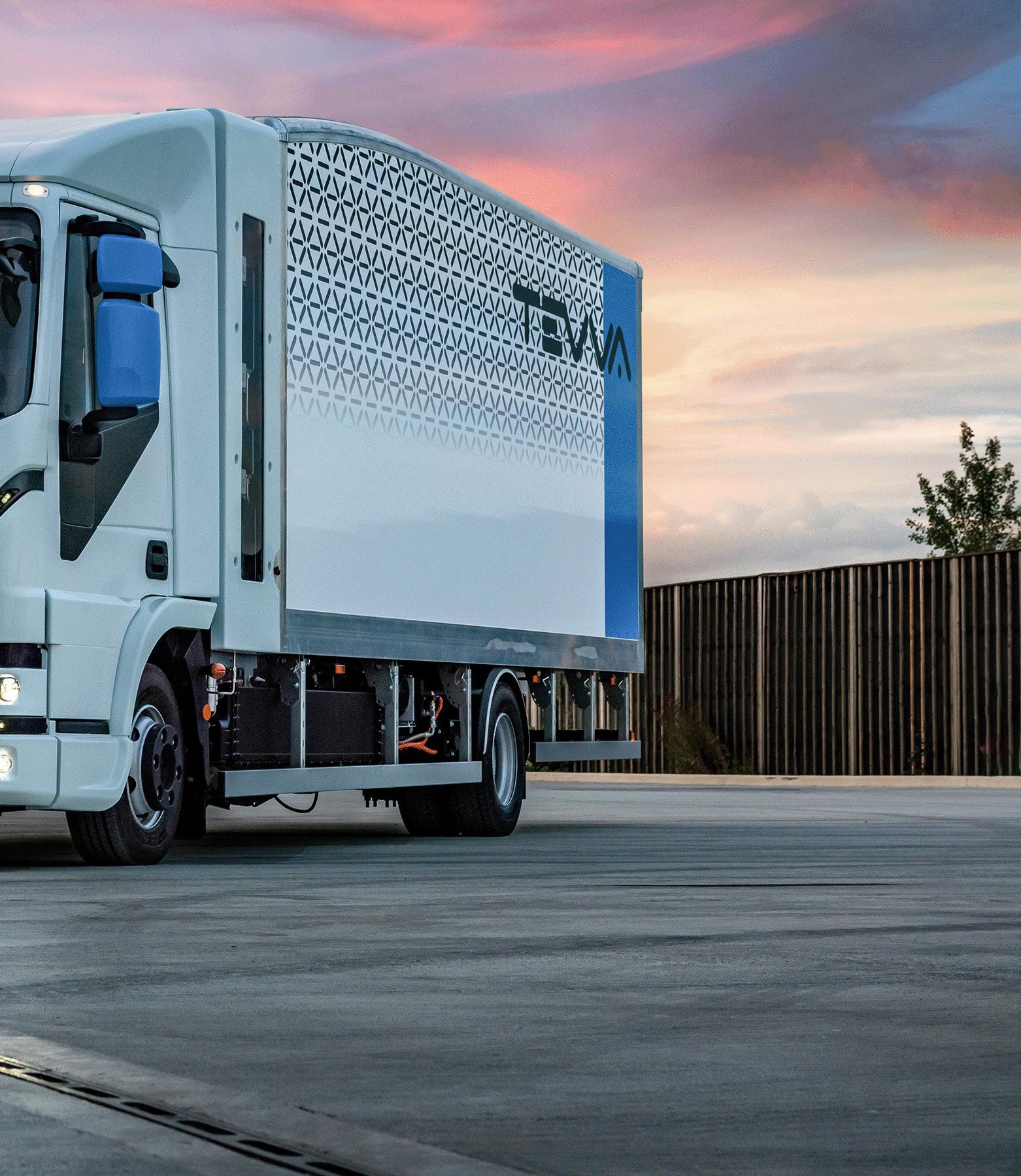
Still, there is an urgent need for a more comprehensive hydrogen refuelling network in the UK, and the speed and scalability of hydrogen refuelling systems will be crucial to adoption while keeping costs under control. Element 2 is doing great work in this space. They are in the process of putting a skeleton network in place with 100 miles between each refuelling station, giving confidence to any haulage company that is considering hydrogen electric trucks.
Today the UK has pockets of Megawatt (MW)-scale hydrogen activities that are evolving alongside ambitious proposals for Gigawatt (GW)-scale low carbon hydrogen clusters by 2030. Learning from initiatives in Europe, Asia and North America, as well as the UK’s own experiences, coordination is vital to minimise costs and maximise the benefits of hydrogen infrastructure. The opportunity is now for UK central, regional and local government bodies and
Jane Toogood was appointed the UK’s first Hydrogen Champion in July 2022 and is tasked with helping to drive industry investment and deployment at this critical stage in the early development of the UK hydrogen economy.
In March 2023, Jane released her first report, giving recommendations to government and industry to accelerate the development of the UK hydrogen economy.
Jane is chief executive of Catalyst Technologies at Johnson Matthey, a FTSE 250 company which is a major player in the research and development of technologies to accelerate the transition towards net zero.
Jane is co-Chair (with the BEIS Secretary of State) of the Hydrogen Advisory Council, created for government and industry to work together to identify and promote the actions required to enable the supply of low carbon hydrogen at scale for use across the UK’s energy system. She has a wealth of experience in business transformation and growth, built over many years across global companies, covering multiple industry sectors from automotive, to healthcare, to petrochemicals.
industry to plan and invest jointly to grow hydrogen transport systems holistically.
The UK does have a supportive and growing hydrogen ecosystem with many public bodies, new and established companies, universities, and others building their hydrogen capabilities and strategies. However, the experience of individual organisations and maturity of cross-industry collaboration in dealing with hydrogen systems is typically much lower than for traditional fossil fuel systems. Therefore, in the short term, early adopters need more support to overcome the limited infrastructure and complexity of supply chains, higher unit costs, and long or uncertain lead times for hydrogen products and services.
As low-carbon hydrogen becomes cheaper and more widely available, hydrogen refuelling has the potential to become as simple as diesel refuelling is today. We are committed to making hydrogen convenient, affordable and sustainable for truck fleet operators. Achieving the UK’s net zero goals depends on it. L www.tevva.com
On her appointment as Hydrogen Champion, Jane Toogood said: “The government has ambitious plans for the UK to ramp up hydrogen technology. Hydrogen deployment as a clean energy source is one of the key solutions to help the UK reach its net zero targets and I strongly believe there is an opportunity to accelerate this, working collaboratively across industry and government to land projects and infrastructure on a timeline that serves stakeholder and customers’ needs.
“At Johnson Matthey, we see that demand for hydrogen ecosystems globally is being taken up across industry, transportation and the power sector at a rapid pace, especially with the increased focus on energy security. As the UK’s Hydrogen Champion, working with industry and government, I hope to ensure we make progress in building a thriving hydrogen economy ensuring private sector investment and policy decisions are aligned to support timely decisions and outcomes.”
The 2023 Commercial Vehicle Show took place at the NEC in Birmingham from 18-20 April and demonstrated the innovation and industry investment going into the decarbonisation agenda
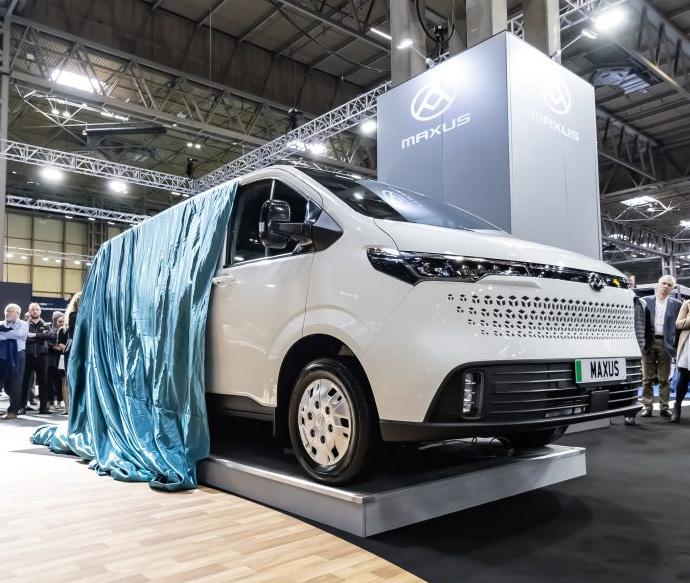
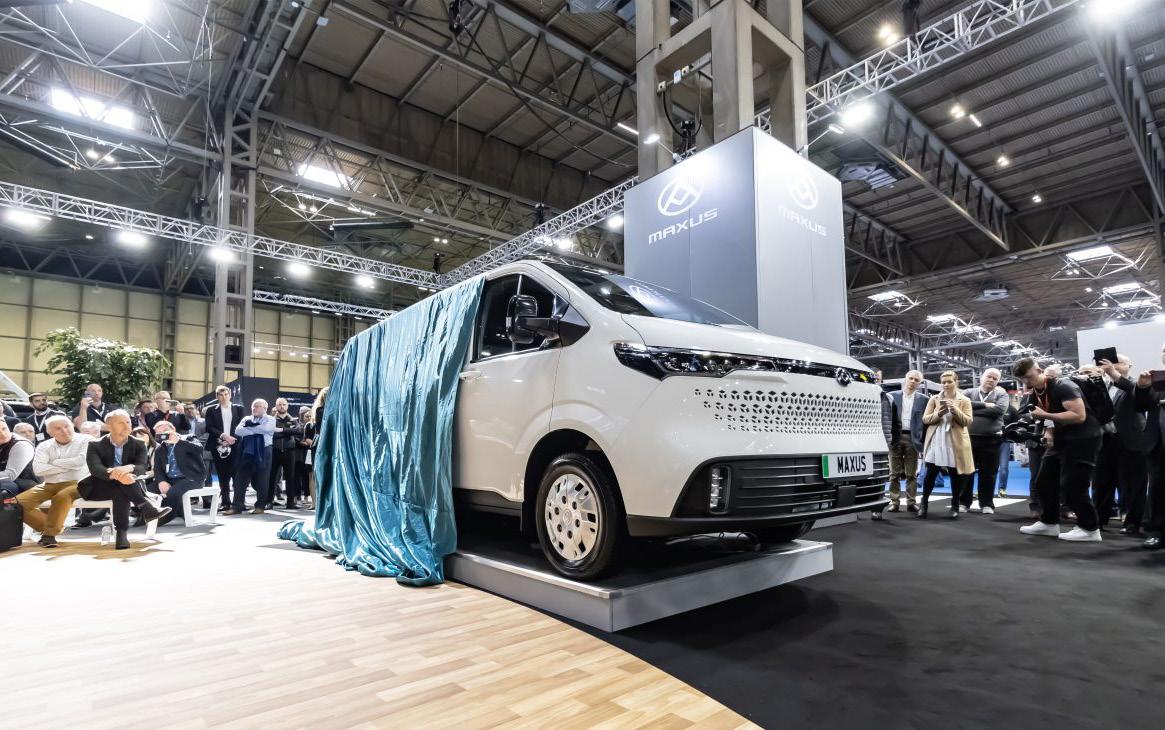
The Commercial Vehicle Show 2023 opened against a backdrop of urgent calls from the heavy goods vehicle sector for a governmentled strategy to drive uptake of zero emission trucks to meet decarbonisation targets. It follows new analysis from the Society of Motor Manufacturers and Traders (SMMT) which showed that Britain’s strategic road network has not a single HGV-dedicated electric charging or hydrogen filling point. This lack of infrastructure makes it impossible for the vast majority of operators to contemplate investments to decarbonise their fleets, putting critical CO2 emission savings of up to 21.1 million tonnes a year at risk.
From 2035, all new HGVs weighing under 26 tonnes sold in the UK must be zero emission – the same date as for the car and van sectors, despite the EV truck market being two decades behind that of passenger cars. The remaining heavier vehicles must be completely decarbonised five years later, but the initial deadline leaves many operators with just one full eight-year cycle of fleet renewal to make the transition. While investment announcements for public car charging infrastructure are gradually
flowing through, there is no equivalent plan for HGV-dedicated infrastructure.
The latest electric and hydrogen-powered trucks were on show at the Commercial Vehicle Show, which shows a massive industry investment. But despite this, the SMMT research highlights there is still much more to do to give operators the confidence to invest.
Mike Hawes, chief executive of the SMMT said: “The question now is how we decarbonise a fleet that is still more than 99.4 per cent diesel powered, and on a broadly similar timeline to cars and vans, with an initial end of sale date looming in 2035. The CV Show provided the perfect platform for manufacturers and operators to discuss this mammoth challenge, and also for the launch of a range of new, cutting-edge electric and hydrogen models.”
Here’s a look at some of the latest innovation at the CV Show.
Greener trucks
The all-electric Nikola Tre BEV was seen for the first time in the UK on the IVECO stand at this
year’s Commercial Vehicle Show.
The Nikola Tre BEV 4x2 has a 738kWh battery pack, consisting of nine modular 82kWh batteries, which powers its unique FPT Industrial e-Axle, producing 645 HP and 1,800Nm of instant torque.
The vehicle is capable of rapid charging at 350kW, achieving 10-90 per cent battery capacity in just 100 minutes, and a full charge gives this truck a range of up to 330 miles.
Hydrogen Vehicle Systems (HVS) used the Commercial Vehicle Show to lay out its plans to disrupt the haulage industry, showcasing its 40-tonne HGV technology demonstrator.
In addition to funding from the Advanced Propulsion Centre, Innovate UK, Scottish Enterprise and Energy Technology Partnership, HVS’ strategic investment partner is the service station and grocery corporation, EG Group, offering hydrogen refuelling infrastructure, fleet customer base and the potential for global scalability.
a backdrop of calls from the HGV sector for a strategy to drive uptake of zero
Jawad Khursheed, CEO of HVS said: “We are delighted to reveal our 40-tonne HGV at the Commercial Vehicle Show. This technology demonstrator showcases our ground-breaking hydrogen-electric commercial vehicle design and advanced powertrain technology. Our zero-emission trucks are a key part of decarbonising the logistics sector. Hydrogen is the perfect fuel for the haulage industry, offering long ranges and quick refuelling thanks to stations being easily integrated into existing key transport networks.”
HVS’ tractor units will be built on an allnew chassis, designed in-house around the hydrogen powertrain, which consists of pressurised hydrogen cylinders, fuel cells, an energy storage system and electrified rear axle.
HVS’ vehicle powertrain employs a fuel cell system and energy storage system to deploy electricity to an electric motor to transmit power to the wheels. It uses the KERS (Kinetic Energy Recovery System) to recapture energy under braking and while the truck is slowing down.
Typical refuelling time is comparable to diesel, around 20 minutes to replenish the high pressure hydrogen tanks.
Volta Trucks promoted its new 16tonne all-electric Volta Zero vehicle at the Commercial Vehicle Show, which is designed for urban logistics and has an operating pure electric range of 95 to 125 miles. Thanks to the removal of the internal combustion engine, the operator of a Volta Zero sits in a central driving position, with a much lower seat height than a conventional truck.
Renault Trucks was present at the show with its battery electric 18T E-Tech D Wide rigid which is available through the Vertellus EV Discovery programme – a unique opportunity for fleets to test EV products in their operations for a fixed three-month period.
Mercedes-Benz Trucks showcased its battery electric Mercedes-Benz eActros LongHaul long-distance truck, which has a 600 kWh battery capacity and can cover around 310 miles on a single charge. Fuso’s Next Generation eCanter which is tailored to inner city distribution transport, was also on display.
Visitors to Nissan’s stand saw the new electric Townstar which has an electric powertrain that has been optimised with intelligent energy management and battery thermal cooling technology. This advanced system delivers a range of 183 miles WLTP Combined (or up to 269 miles on the City Cycle). The Townstar EV’s 45kWh battery offers both AC charging (11 kW or 22 kW) or DC CCS quick charging, the latter of which enables users to charge the battery from 15 per cent to 80 per cent in around 37 minutes.
IVECO made its UK debut of the eDaily at the 2023 Commercial Vehicle Show, which has a 248 miles range and allows for rapid charging of up to 80kW. The eDaily pioneers a modular battery concept, with customers able to specify their vehicle with one, two, or three 37kWh units. This allows operators to tailor their eDaily to its specific mission, balancing range with payload and journey patterns. Should the vehicle’s role change or subsequent owners need a different specification, IVECO dealers can add or remove batteries in as little as two hours.
Other benefits of the van include 3.5-tonne towing capacity, a truck-based chassis that carries 4.6-tonnes of payload and cargo volume of up to 19.6 cubic metres.
MAXUS unveiled its newest all-electric commercial offering – the eDELIVER 7, which bridges the gap between MAXUS’ current eLCV offerings of the smaller eDELIVER 3 and bigger eDELIVER 9.
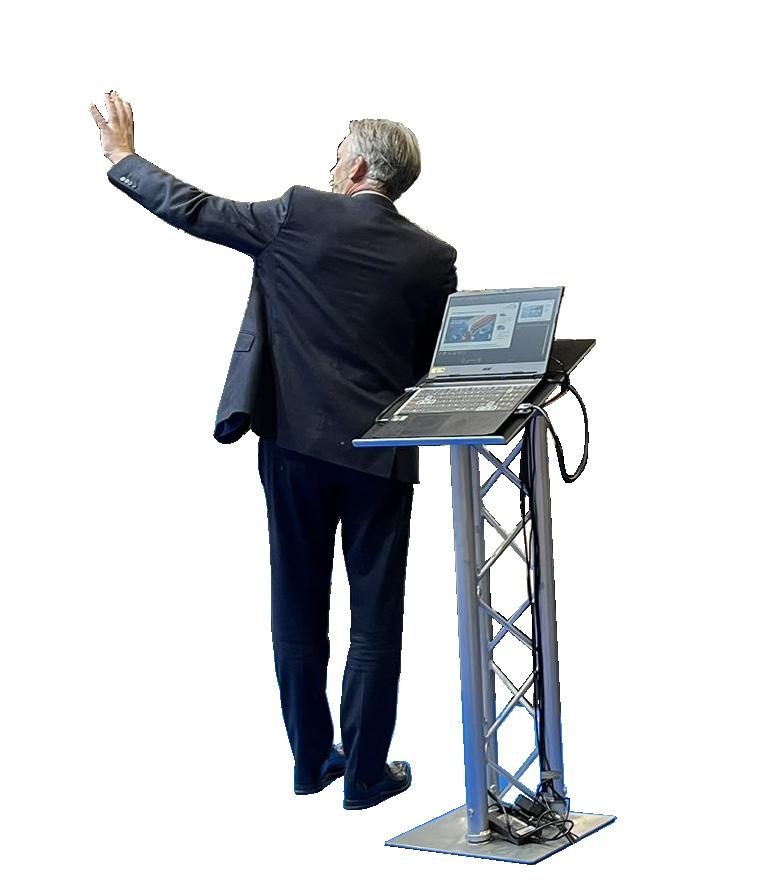
The eDELIVER 7 has a range of 226 miles (WLTP combined) on a single charge (88kWh battery), and is available in three size configurations, with a payload of up to 1200kg. The eDELIVER 7 features a 150kW /330Nm high power, low energy motor with an acceleration time of 0-100km in 11 seconds.
Speaking at the launch of the eDELIVER 7, Mark Barrett, director of Harris MAXUS said: “The 2023 show marks our fourth vehicle launch at the NEC Birmingham, and our sixth EV vehicle launch in just seven years. In that time, we have positioned ourselves as a market leader when it comes to electric
vehicles and the eDELIVER 7 builds on our EV range, securing our position in this regard.
“Our electric vans have proven popular with businesses in the delivery, pharma and grocery/retail sectors, as well as being the number one choice for many local councils that are looking to switch to electric. Our latest addition is pitched at those who need more payload capacity than the eDELIVER 3, but who may not need the full-size capabilities of our eDELIVER 9.”
MAXUS offered visitors a pure EV experience at the CV Show for the third consecutive year, with 12 zero emission vehicles on the stand. These included the eDELIVER 3 and eDELIVER 9 cabin van and chassis variants and an eDELIVER 9 minibus, MIFA 9 MPV and the T90EV on-road pickup truck.
Watt Electric Vehicle Company (WEVC) revealed its light electric van prototype at the show, codenamed WATT eCV1. It enables a wide range of electric commercial vehicle designs, facilitating mission-specific models which meet customers’ particular fleet requirements.
The first of multiple commercial vehicle offerings to come from WEVC, the eCV1 uses the company’s breakthrough, proprietary PACES architecture, a sophisticated yet costeffective modular electric vehicle platform. Developed to support commercial vehicle manufacturers, specialist vehicle converters and fleet operators in the transition to an electric future, PACES complies with ISO regulations and exceeds stringent European Small Series Type Approval safety standards. It’s ’cell-to-chassis’ system means batteries are integrated to the primary structure (rather than having a separate battery pack), optimising stiffness, minimising weight, and maximising payload. As a result, the clean sheet design means the eCV1 has none of the structural, weight and packaging compromises inherent in most electric LCV designs, many of which having been converted from ICE drivetrains and which are further constrained by traditional high volume manufacturing processes.
The WEVC eCV1 prototype has a kerbweight from just 1750kg, delivering class leading payload and range in the 3.5t and 4.25t segments.
Complementing the vast range of vehicles, services and components on show was the live theatre programme, covering the future of the industry in the Road Ahead Theatre, and in-depth engineering expertise in the Workshop Theatre, in partnership with Commercial Vehicle Workshop.
Key speakers included Mike Hawes, SMMT’s chief executive, Rod McKenzie, RHA’s Executive director of communications, and Mike Cutts, director of Light Vehicle Business at Iveco, along with sessions covering van crime, driver safety and telematics. The Workshop Theatre featured a range of expert presentations, including battery technology, driver assistance systems and repair certification. L
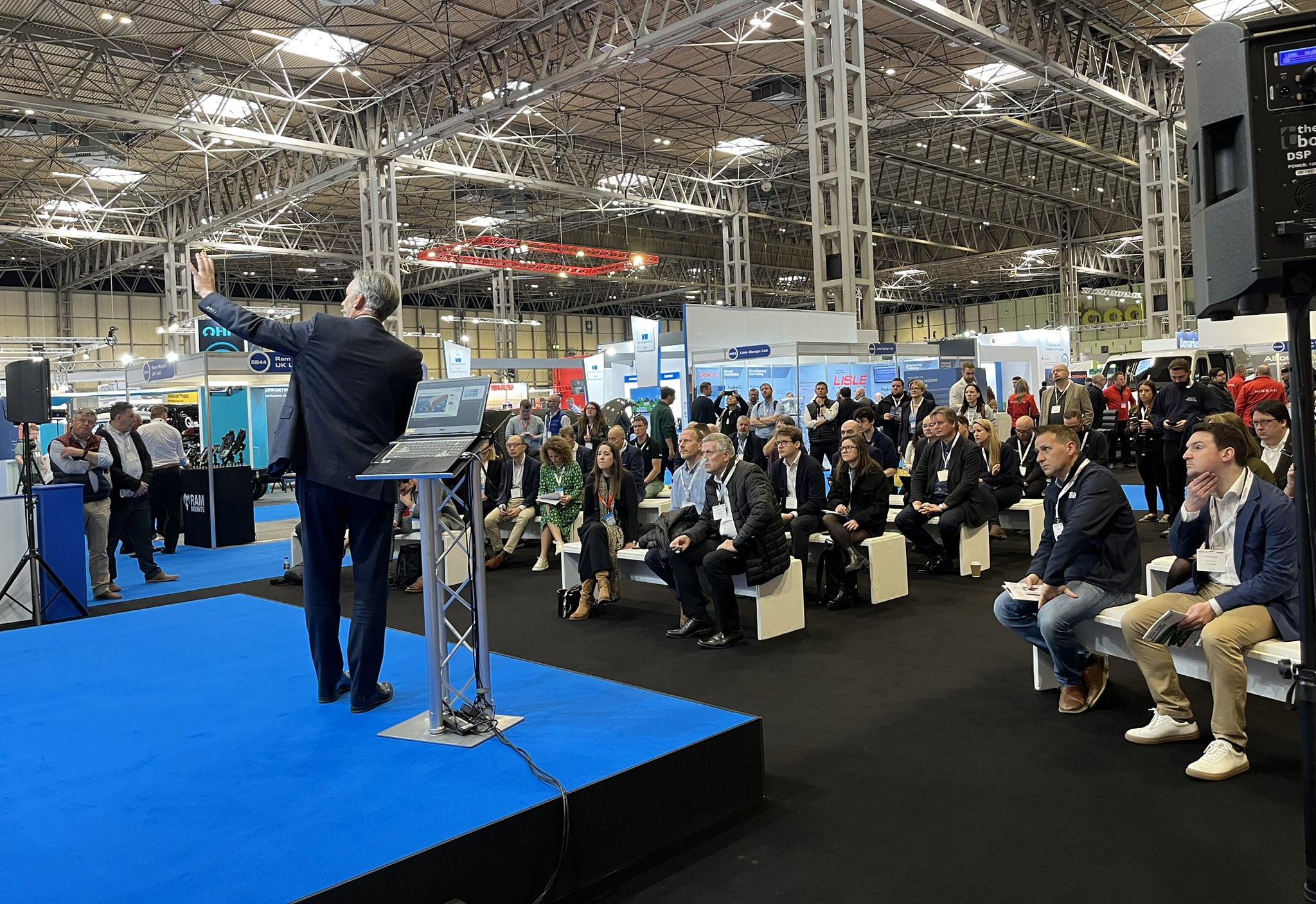
The Innovation in Technology & Transport (ITT) Hub, which takes place on 10-11 May, is a two-day exhibition, conference and meeting programme which will guide the transport industry through a challenging ecosystem of future technologies and opportunities
Zenobē, said: “Zenobē’s mission is to make clean energy accessible to all, and industry collaboration is vital to achieving this. ITT Hub brings industry experts and innovators together to showcase the technologies that will achieve an environmentally and economically sustainable transition for the transport sector. We look forward to sharing insights into the bus and truck fleet electrification projects we are delivering in the UK and around the world.”
Innovation in Technology & Transport (ITT) Hub will be bringing together changeagents, their technology and their mindset to set the future path for a smarter, more sustainable global transportation system, on 10-11 May 2023.
A catalyst for change, the ITT Hub programme has been designed to highlight each corner of the commercial road transport’s ecosystem across the Logistics UK conference and stellar programme across dedicated show-floor Tech Talk Theatres, focusing on net-zero and decarbonisation, EV charging, OEM innovation, sustainable fuels, telematics and fleet technology, intelligent transport systems, finance and leasing, and future tech.
With over 90 speakers and 50 content sessions across 14,000sqm of technology showcase, ITT Hub offers a range of keynote speeches, panel discussions, product demonstrations, and networking opportunities.
Programme highlights
Day one in the Passenger Fleet Theatre will cover how to deploy a future-proof end-to-end charging infrastructure that optimises service efficiency.
The Future Logistics Conference will cover decarbonising the heavy transport sector, while the business case for fleet electrification will be discussed in the Commercial Fleet Innovation Theatre.
On day two, there will be an address by Jesse Norman, Minister of State for Decarbonisation & Technology, and a launch of logistics UK’s EV Report, both in the Future Logistics Conference.
There will also be a session on developing a cost-effective electrification roadmap for your fleet at the Commercial Fleet Innovation Theatre, and a talk on powering the biggest fast charging depot in the UK at the Passenger Fleet Theatre.
Carlo Zoccali, venue and show director at Farnborough International, the organisation behind ITT Hub, said: “We are at a pivotal time for the commercial road transport industry as more and more businesses explore opportunities for a smarter, more sustainable global transportation system. ITT Hub convenes the pioneers in the sector for an unmissable two-days of networking, insight sharing and showcases across the transport and technology sectors.”
Technology, strategies & solutions
Teaming up with leaders across the industry, ITT Hub has brought partners Logistics UK, National Grid and Zenobē, as well as gold sponsor Samsara, on-board to deliver a programme and exhibition which is a true reflection of the sector. Attracting the industry’s most influential professionals and leaders, ITT Hub 2023 exhibitors include a vast range of companies serving the fleet and transport sector, from EV charging to telematics and alternative fuels. See the exhibitors here. As the pioneer of the Connected Operations™ Cloud, Samsara is excited to be a gold sponsor of ITT Hub this year. Dominique Hall, marketing director at Samsara said: “It’s a fantastic opportunity for us to be at the heart of the transport ecosystem to collaborate, learn, network and showcase how we will lead the drive for innovation through data driven technology in transport. Come meet us at stand 1320 or grab a seat to see our opening keynotes in the Commercial Fleet Innovation and the Passenger Fleet Innovation theatres.” TT Hub will be co-located with TCS&D’s Cold Chain Hub, a dedicated exhibition for the frozen and chilled foods and pharmaceutical sectors. See exhibitors here Speaking of their partnership with ITT Hub, Steven Meersman, co-founder and director,
Organisations are choosing ITT Hub to unveil their latest technology and services, such as Equipmake, which is expanding its electrification offering to the coach sector, collaborating with London-based Westway Coaches. The agreement will see Equipmake further accelerate the electrification of Westway Coaches’ fleet by converting a proportion of its existing diesel coaches to electric power with its state-of-the-art drivetrain technology.
In addition, Portland Fuel is offering free consultations with its expert team of environmental consultants, who will work closely with attendees to identify areas of improvement, provide tailored solutions, and guide them towards a greener and more sustainable future.
ITT Connect is a brand-new meetings programme for this year’s event, offering a complimentary networking platform that allows visitors to arrange valuable meetings prior to the show. By registering to ITT Hub 2023, fleet operators can connect with exhibitors on an easy-to-use platform and maximise their visit to the show.
A two-day indoor and outdoor exhibition, conference and meeting programme, ITT Hub guides the transport industry through a challenging ecosystem of future-altering technologies and opportunities that will transform this ever-evolving market and beyond.
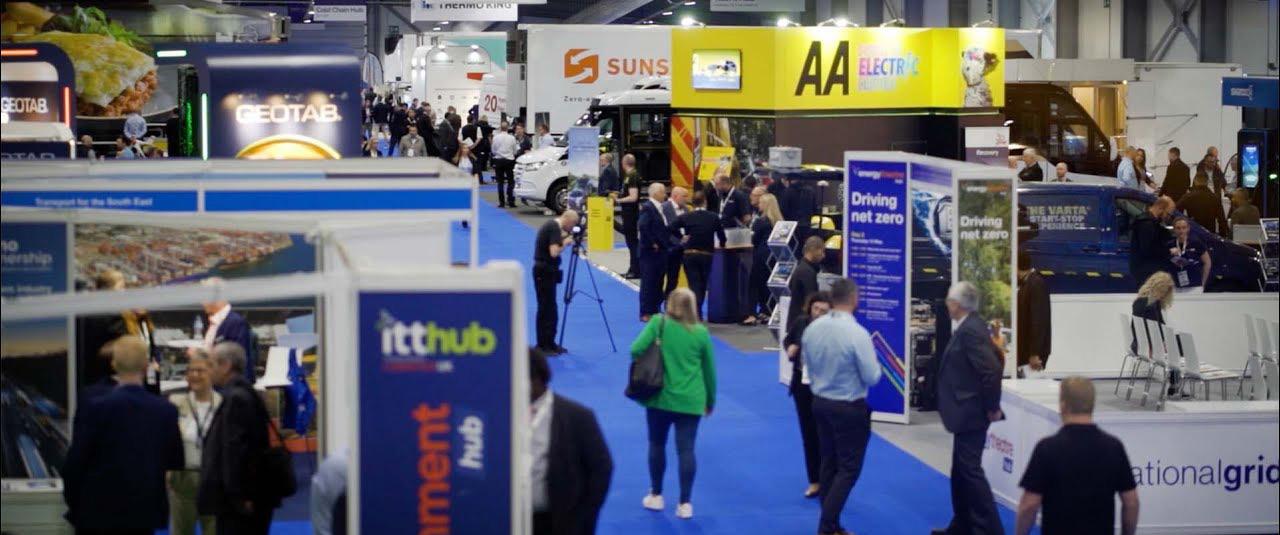
Be at the heart of the transport technology sector and book your free pass at ITT Hub 2023 on the website below.
www.itthub.co.uk
